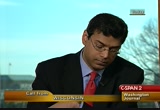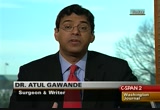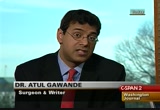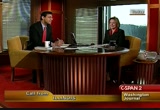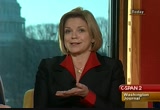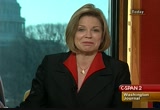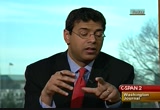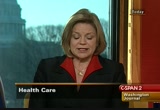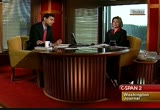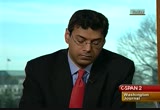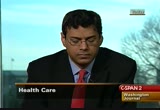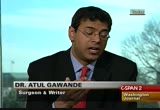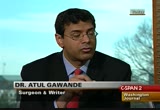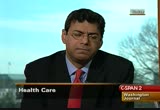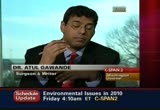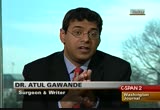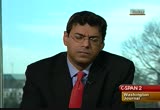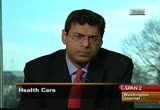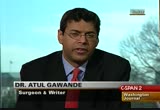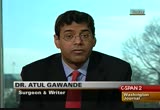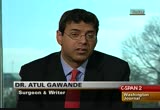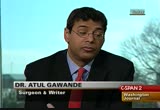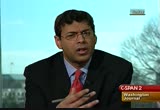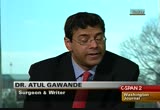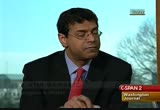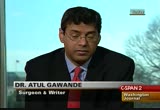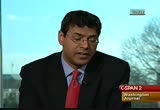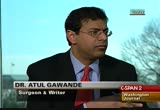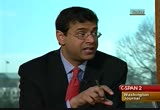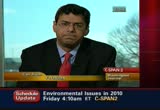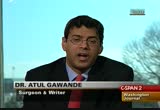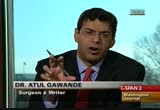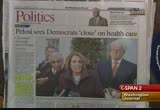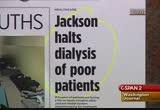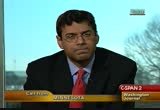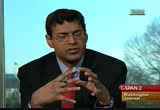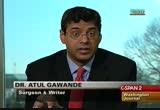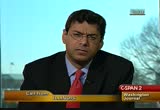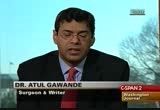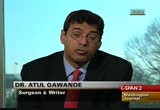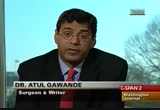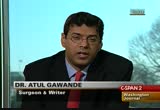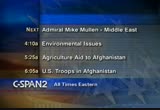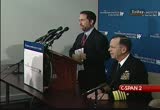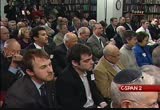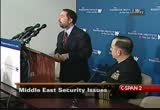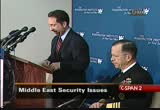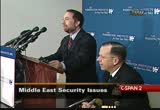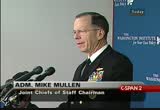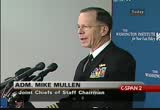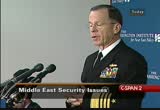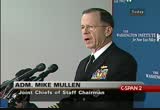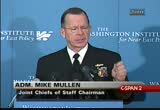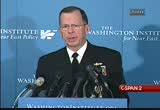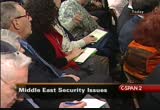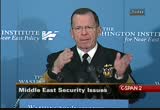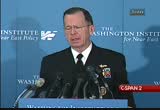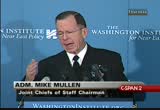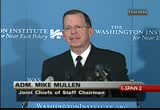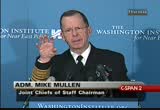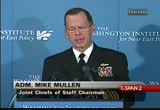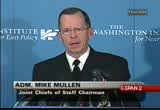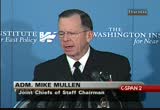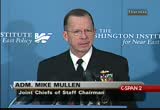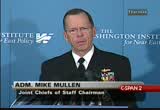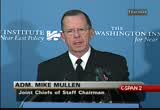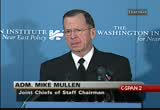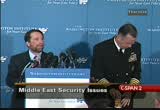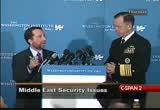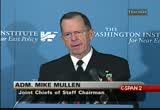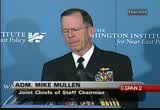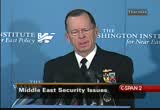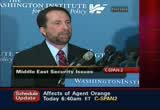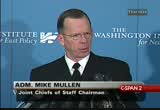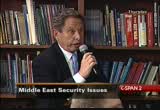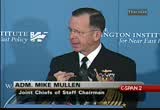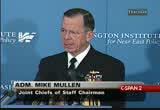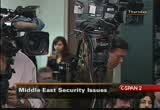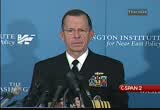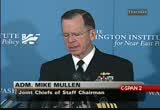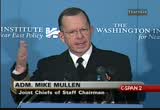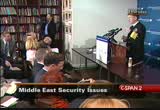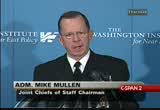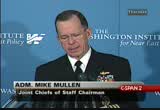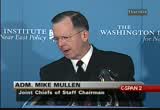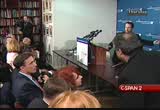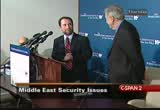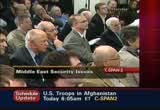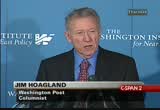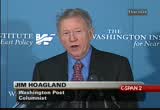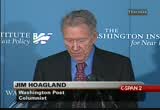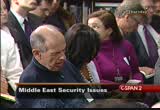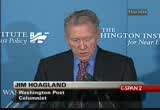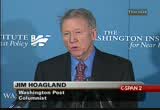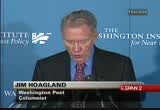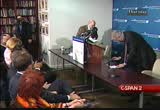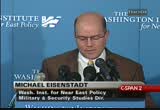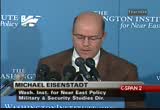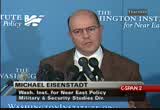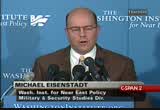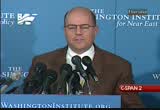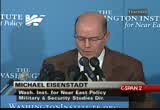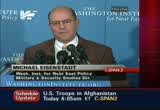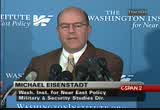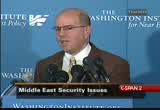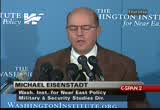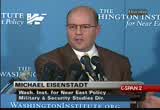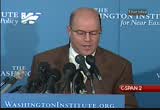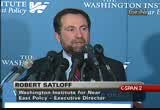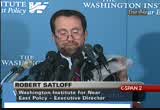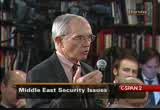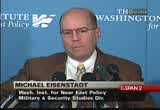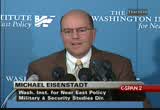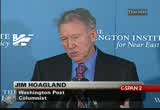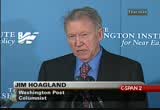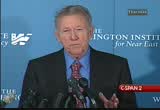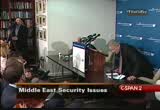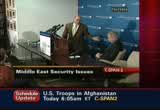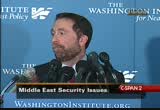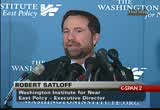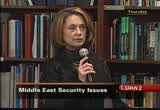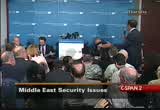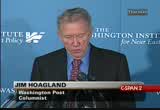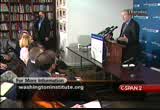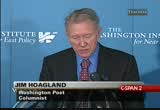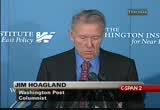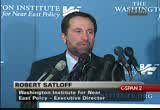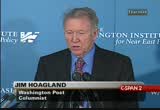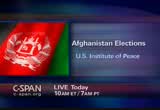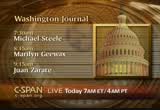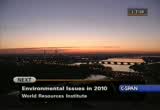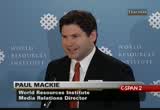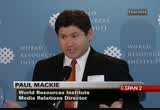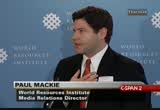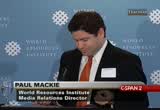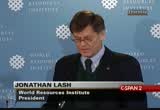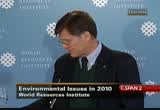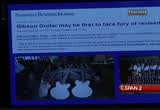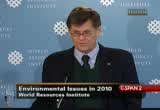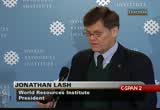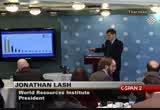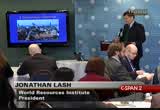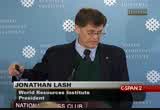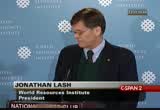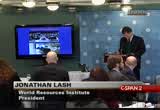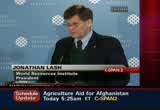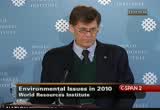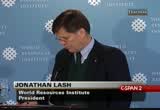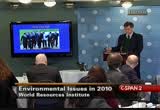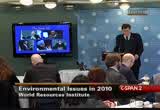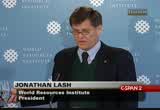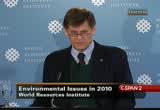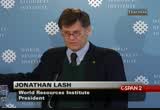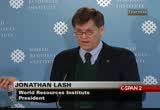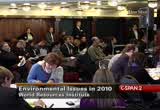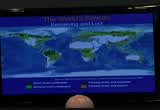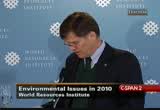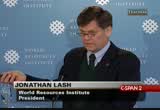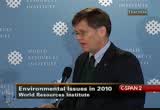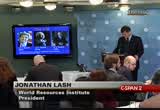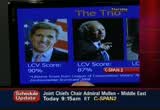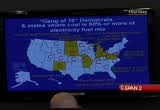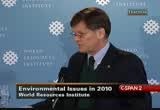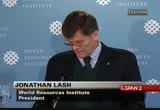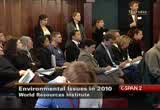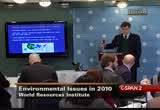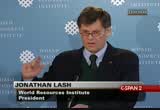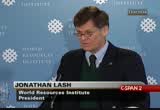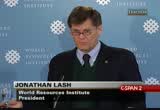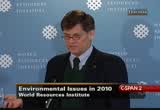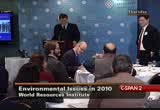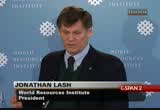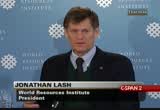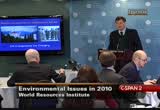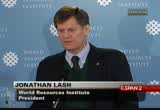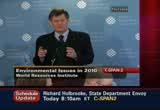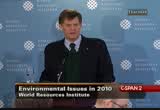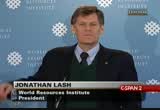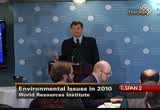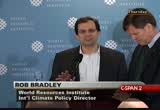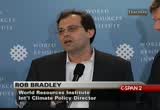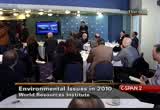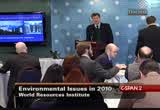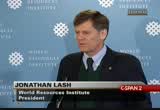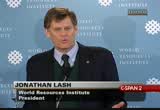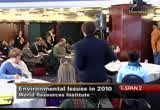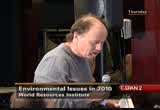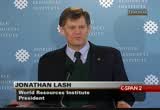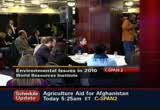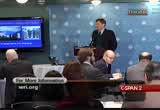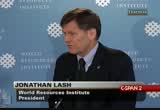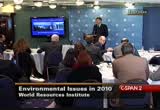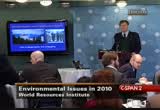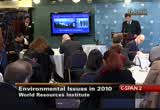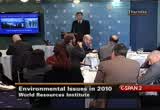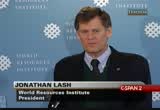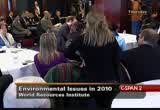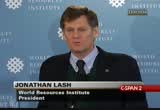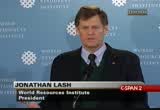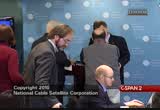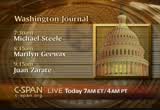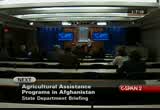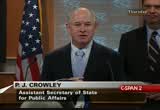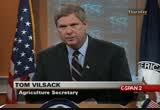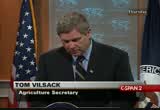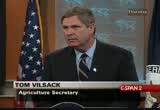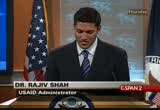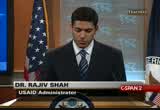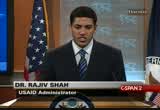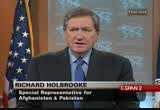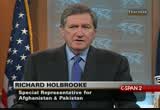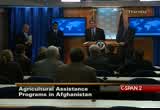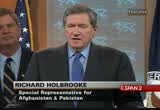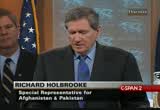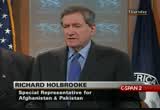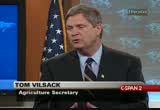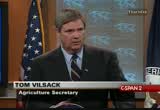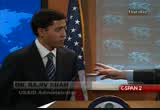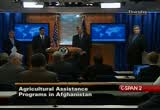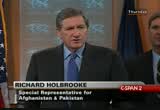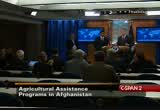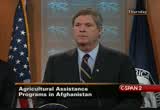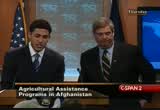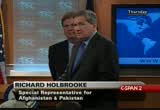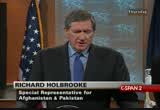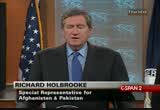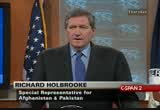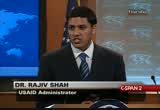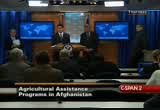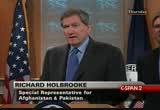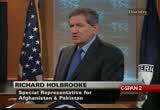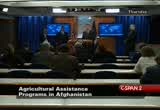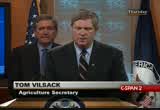tv Today in Washington CSPAN January 8, 2010 2:00am-6:00am EST
2:00 am
reform there, there's not been a tamping down of the cost and then when you compare to communities, the counties on the border that have very similar public health populations, one community was spending twice as much money for health care than the other and what you saw was business incentives and home care agencies and others that have cropped up to take it the image of the insurance system. and you saw really fragmented comet disorganize care where doctors had not organized to make sure we were taking care of the primary-care up front, avoiding overtesting. even more, he sought to to three times as much surgery in the population. essays surgeon we really are doing surgery just to protect ourselves from malpractice suits. instead you have gray zones. you have a patient with the gallbladder attack. do you watch it to see if there
2:01 am
are more attacks or do you take up the gallbladder at that first watching and you make some money doing the operation, there is that tension between those needs and the business needs. host: good morning, scott. caller: good morning. i have a question about efficiency and automation. is it possible that we could -- i know that there's a lot of advancements in surgery and things, and is it possible that we have a loss of the jobs because our medical system gets so efficient, like what happened in industry of working-class people, fabrics, automotive,
2:02 am
woods, and things like that? is that a possibility that could happen? guest: it is. it is actually -- the move towards are being more efficient -- we could have lots of people digging ditches and we could hire more people to dig ditches and fill them up again, but if they are not providing value, it is not help our economy. in a similar way, in health care, if we are moving more and more into that sector of the economy, it means we are not able to grow and other parts of the economy. the places we are going, we are far from a world where we are about -- one of the striking things is that in this recession, health care is one industry where it has continued to grow in employment. we have expanded spending in health care over 130% over the last 10 years, and a lot of it has been in middlemen in the
2:03 am
system, without necessarily getting you more time with your doctor. that is one of the bizarre parts here. it is why, unexpectedly even for me, i wrote a book about check lists in health care, because solving these problems is really about these things -- we will be much more disciplined and organized about how we design care. i designed with my team a surgical checklist with the world health organization that is a two-minute check to make sure there are 19 things you get right in every operation. i was stunned to see in two out of three cases before we brought it in, patients had one of those keep life saving steps missing. we implemented it in eight hospitals, and we saw in 8000 patients we produce a major complication rates by more than 35% -- reduced major complication rates by more than 35%. we don't work on these kinds of organizational problems in
2:04 am
medicine, partly because of the incentives, and partly because we as experts don't think of these as the kinds of problems to work on. host: next question is from illinois, andy on our republicans' line. caller: first, i want to chastise most of the colors. seems like all of them call you up and ask, how are you feeling this morning? you know, you answer it wants at 6:00 in the morning and you don't have to answer any more, i don't think. anyway, the reason we have the best health care and the world is that we spend so much on it, and we spend it the wrong way. what we should do is specialized -- when i need a gallon of milk, i go buy a gallon of milk at the best price for my money. when i break my leg, you know, i don't know what is the best value i can go for my money. what we need to do is promote the capitalism in health care
2:05 am
and get it away from the insurance model. i'm so tired of everybody saying we need to have coverage. well, and no, we don't need coverage. what we need to do is no where to go -- that is to know where to go to get quality care at the best price for our money. host: let me interrupt for a second and poke around the edges of your analogy. with the milk, you want milk. but you don't necessarily know you of broken your leg when you of fallen. the first step is getting the diagnosis. caller: exactly. we have got the internet. i'm actually writing a book on how to fix all of this, and i know how to fix the health care system in the country, and in a way, is it completely opposite of what they're doing in congress. it is to unleash the specialization -- several
2:06 am
economic principles -- specialization, supply and demand -- we need to have the supply of health care professionals much greater, train them in a free or nearly free clinics, where people are means tested and have a copiague, electronic medical records for every american -- several points to be killed to go into here. -- too detailed to go into here. guest: he is onto something that is right. we have a figure to be really transparent about where the choices are in men -- a failure to be really transparent about where the choices are in medicine. one of the fascinating about the bill is efforts to create and use for this. i think until towards of competition here is that we want organizations -- i think the real choice of competition here is that what organizations to be accountable for the standard of
2:07 am
your health care and deployment, whether it is vertically integrated models of health care that we're seeing in places like the mayo clinic -- i am part of a system that is trying to move in this direction in boston. but the systems are about is saying to people that we will provide the full package of services, even the complications, and we will work to ensure that they are higher quality at lower cost. the bill offers a world where we will have competing insurers in exchanges that are driving in the direction of giving people more choices like these. but the second part of it is that we have not been willing to be as transparent about our results, or the work on these organizational problems. and so might sense of the here is -- my sense of it here is that what is a desire to sweep away the old system, drop a new
2:08 am
one on everyone, but the reality is that we have to build from where we are today, and it is taking steps forward, including the ideas of really driving our reform process in the direction we have got. half of the 2000-page bill is about coverage and insurance plans, but the other half are experiments and changing the way we a for health care and make it more transparent. host: the doctors latest book is available right now, and you also have a web site. guest: www.gawande.com. host: what will people find there? guest: two things. information about the books, but also the research we do with the world health organization, deploying these to surgery and childbirth and beyond.
2:09 am
host: our next call, patricia. caller: hi, susan, dr. gawande. . i'm retiring nurse. i want to mention two issues that i find would be helpful for reforming the health-care system. one of them is -- you had a guest on -- susan, i don't know if you are the moderator at the time -- but it was either from johns hopkins or the mayo clinic, and he confessed that there were no standards of practice for high-risk surgeries in hospitals. that astounded me. i feel that that really, you know, is a tremendous race towards tort reform. i think it is necessary to have standards of practice in hospitals where they perform
2:10 am
high-risk surgeries. it is the fault of the physician and hospital, they should pay out a patient who suffered -- the family of the patient who died, or the patient that has long term negative results. this would reduce tort reform immensely, as far as i'm concerned. secondly, i want to talk about primary-care physicians. i know that president obama is pushing for a primary-care physicians to increase the help in rural areas, especially. however, i go to a primary-care physician, and i like him very much -- however, i had an experience with the drug they put me on when i was under chemo, and that increased my blood pressure. host: patricia, with all apologies, we have a lot of
2:11 am
colors. -- callers. caller: i'm sorry. when they found out my kidney tests will become the primary care physician did not listen to me. host: what is the point about primary-care physicians? caller: the point is that i was sent to other physicians, and multiple tests were done, and this to me was a waste, and medicare and private insurance had to pay for all this waste. all i am trying to say is that if you are going to put primary- care physicians in, you have to teach them to know what they are doing rather than to rely on specialists to get the answers. host: great, thank you. we have a la -- a lot of callers waiting. guest: what she is describing is the world. struggling with in edmonson. -- had the world we are struggling with in madison.
2:12 am
we cannot know it all. we have been unwilling to admit that. we've been trained to get the idea that it is all going to be in our head, and we have not developed the systems in the place that can change that. it is why i ended up writing on something as mundane as developing a checklist across madison. we look at the aviation world and how they handle themselves, the skyscraper world, and we found the the first principle of successful conditions of complexity is for experts to admit to themselves that they are fallible, that they will fail at times, it will not remember everything, and then to build in those standards of practice, the checks on the half-dozen things that we should just never forget, that we check before you even go out the door. it runs against our expert in stings. becoming expert is about the idea that we don't use checklist 30 am smart enough to know that
2:13 am
-- that we do not use checklists. i'm smart enough to know what i do, that is for low status people. but as they use them, saving errors over and over, i started using checklists. i thought that at harvard, you know, we know we're doing. i have not gotten through a week without finding that our checks are catching problems of the sort that she is describing. complexity has gone beyond our individual capabilities, but we have tools that can improve our quality while saving our costs. host: california, mark, independent life. -- line. caller: i'm wondering what his views are on how the media has covered the medical malpractice issue, and unnecessary surgeries that are being done, unnecessary
2:14 am
tests. constantly, the press is representing this and repeating statements from some of those involved, which implies to the public that these are tests or surgeries that are done because of the risk of medical malpractice, when in fact performed the surgery is probably the most risky thing you can do. it is absurd to make this claim to the public on a regular basis. the press, of course, is getting at enormous amounts of advertising -- you can see these full-page advertisements from hospitals, and when you get hit by a car on the street, you are going to go to the hospital. you do not need to see full page advertisements in your newspaper. but $70,000 cash money coming to the newspaper every day, every day at the full-page advertisement appears in the newspaper for lasik surgery, different kinds of advertising, different methods of pumping money into the news media to corrupt the news media, and the bribes paid -- host: we get the point, thank
2:15 am
2:16 am
about 1/3 of our communities that are providing higher-than- average quality with lower-than- average costs. moving our communities to embrace what those kinds of practices are at the medical front lines is likely to be the place where we will get the most bang for the buck and actually make a difference. with our economy struggling because our wages are being diverted over to the health-care benefit costs, we all have run into this wall, and it is why reform keeps pushing ahead, even though it is so complex and gives us all these headaches and worry about where it can go. it is because if we do not act, we -- will find well, we are already finding ourselves in deep trouble. it is hard for me to blame the news media on that one. host: we are having a discussion on health care and the delivery mechanisms in this country with atul gawande. next call is from alabama, linda
2:17 am
on the republicans' line. caller: good morning. i have two questions and i will try to make them brief. he sounds like a very nice doctor that i am listening to. the first question is, my husband and was rushed to the emergency room in 2009. my son said that he had no strength, could not stand. after nine and a half hours in the er, the doctor came in and its stated, "i believe your father has suffered a stroke, there is nothing we can do for him." my son says, "what can i do? i cannot get him home. my father is greatly il." he said, "if you want a question my diagnosis, i have a form you can fill out to take a discharge and go of my recommendation." my son to get rid -- my son did that.
2:18 am
my entire family from central kentucky drove seven hours to get to birmingham. they did nothing to it did not come into the room, -- they did nothing. they did not come into the room. he needed to go to the bathroom, and we assisted him. three weeks later, the same scenario. my son called me, and i said, " you called 911, you call them now." they got there, my husband, since august 19, has been in birmingham, alabama, and they did not do a simple test on him. he had pneumoniae. it turned into respiratory failure. at dr. -- that dr. got in my face and my son's face saying, "it will not dispute what i as a medical professional have told you."
2:19 am
we had come to realize that there were two deaths last year in the hospital from pneumonia undiagnosed. he got a bill for that one day, $18,000. guest: the kind of story you are telling gets at the heart of many issues we are struggling with. look, first of all, if you have a stroke, you don't necessarily know, but with slurred speech and not moving one side of your body, a family member needs to called 911 right away. 60% of the strokes in our country are treated in completely or inappropriately in our hospitals. we want to say is that hospital or that dr.. for the most part, what i find is that unbelievably hard working people, unbelievably trained, but pushed against the limits of the complexity of delivering -- things i say we
2:20 am
are fooled by penicillin, where we thought that most medical treatment in the 21st century, an injection that would make an infection go away, make a stroke away, make a cardiac problem go away. the reality is that it has been much more complex than that. the pneumoniae you talk about -- 40% of newmont yet in our hospital -- of pneumonia in our hospitals are treated it incomplete or inappropriately. not because people are not smart, but we are fragmented in our care. you experienced a drop in communication between one person coming on shift it and the next person where we have not gone forward is embracing ideas that are, in some other industries -- as professionals, we see mistakes by lawyers, we see mistakes in foreign intelligence failures. the common issue is what the public feels about what the philosophers called ineptitude.
2:21 am
our biggest struggles are no blogger with ignorance, although there are areas of scientific -- no longer with a difference, although there are areas of scientific ignorance. the solutions will come with doing ourselves from focusing on individual experts to thinking of ourselves as teams that have to have discipline, standards, and most critically, effective kinds of checks on ourselves that can aid the expert to be more effective than they were. host: taxes come mark on the democrats' line. -- texas, a month on the democrats' line. caller: i think doctors prescribed pharmaceutical drugs way to much. the to be the last option. -- i think it to be the last option. second, i want a public health care option. i'm self-employed and i have had terrible health insurance my whole life. and i am healthy, so i am lucky
2:22 am
on that. those are my questions. host: let's start with prescribing too many drugs. guest: we have a clear areas of undertreatment, and clear areas of overtreatment and mistreatment. drugs are often not given a four key conditions, especially preventive care, drugs liked saturn's for people who who have high coronary at risk, not offered as consistently as they should read it in other instances we are -- as they should. in other instances we are over- prescribing drugs. do we have complete let the experts locally run things without any sense of feedback or
2:23 am
information on it? we are on the way to carving a path between these two. of course we do not want on manned control. what we want ouare tools, better statistics and information about how well we're doing with the producing overtreatment and undertreatment, having that information --with reduecing or overtreatment and undertreatment, having that information available by county. that information is critically needed. and then what comes in behind that is the sense that doctors will check for themselves. i had a patient who led an onset of depression and went to her doctor, and they tried and i to present medication after its anti-depressant medication to -- they tried anti-depressant
2:24 am
medication after an anti- depressant medication. they realized years later that they had forgotten to check a hormone levels. the problem was not too many or too little drugs. the problem was that they missed the basic check along the way once she got the thyroid -- along the way. once she got the thyroid hormone, within two weeks she was better. host: how'd you feel about drug advertisement? guest: i'm conflicted. i feel they are largely unproductive spending. the reason they spend money on the advertisements is that the surveys show that 80 percent of the time, when they come up with the advertisement, they get the drug prescribed to them. trying to argue out of it just takes too long. what we really need, though -- i have no idea concerning the legal issues -- what it reflects is that we have a value to the
2:25 am
payment for things, drugs, tests, things that i do, without valuing the time that the doctors spent with people, where you can talk through what is the best problem here and how to best take care of it. doctors time is actually now cheaper than many of the technologies we have, and we have undervalued that critical he main component. it is not just doctors treated as respect -- not just doctors. it is nurse practitioners, people who can get the right care in the right time in the right ways. host: kentucky, good morning to you. caller: this bombardment of high-profile drugs and things like that -- you have a lot patients who go to the doctors it or something they have seen on tv, and is not necessarily something that they really suffer from, because they had
2:26 am
one of the symptoms. also, what about the drugs for minor afflictions -- with a lot of the drugs from one of the actions, they have severe side effects. is something that the -- with a lot of the drug some minor afflictions, they have severe side effects. it is something that the fda is getting on top of. guest: when a patient comes to see me with a particular treatment they want, they want to surgery potentially or a drug. if it is completely unindicated, that is an easy call. the hard part is that when people are responding to an advertisement or just when a patient comes in and has a fever for one day, and the temptation is to prescribe an antibiotic when in certain circumstances, a
2:27 am
cold is much more likely. over-prescription has led to massive resistance to the antibiotics that we are using. we want to be able to push back and say that in this circumstance, we should not use an antibiotic. but under the temperatures and the production model of the medical world, it is often easier for physicians just not to battle writing a prescription or an mri scan or sometimes during an operation. understanding how we can make systems that recognize -- we don't even measure how much overtreatment there is, identifying the places where we can work on it, and working with communities towards making sure that the mix of care patients get is much more suited to what their problems are and what their needs are. host: this message here --
2:28 am
how challenging has it been to incorporate that into use in major practices and hospitals and that sort of thing? guest: on the one hand, we have pockets where we have done it and we have seen improvements each time we have done it, but it really has to be clinicians who are willing to embrace it. there is a huge difference between good checklist approaches and that checklists are purchased -- bad checklist approach is. if they are poorly designed and they take way too long, a doctor cannot use them at the bedside, or find them on helpful. when we put in our approach for surgical care we found a greater than 1/3 reduction in publications -- in complications -- the u.s. has only had a 20% of hospitals moving with this idea. partly it is because we are all working as solo agents and are
2:29 am
not used to getting together as an organization. host: with a national health- care system where that is easier to implement -- guest: that is right. people are more organized in many ways. the other component of it is that everywhere, experts are resistant to these kinds of ideas but we don't like having checks. when we surveyed teams after the implemented the checklist, in the beginning, they did not like at the end, 80% like it, but we still at 20% who hated it, said it was excess paperwork, too much time, "i hate this." then we ask, if you work the patient in the operation, but would you want the checklist to be part of the care? over 90% said yes. host: next call.
2:30 am
2:31 am
including what incorporate the cost of the gauze and everything else. an interesting phenomenon is that the person who decides whether we use the disposable equipment, the $1,000 item, is the surgeon. i remember going into a case just a couple of weeks ago where we found that we had wasted about five dozen dollars worth of stock. first of all, -- about $5,000 worth of stock to first call, i tried to find out how much that's tough cost. -- that stuff costs. the second thing is that i did not really notice it until i started writing about these issues. each of us are so separated in responsibility is that we never looked at the whole system of care where we say, let's do this operation in the most efficient way possible with the best quality results, working
2:32 am
together as a team. we do that at my hospital in the sense of organizing ourselves, taking ideas from other places, trying interesting things, thinking of ourselves as that kind of organization, moving in that direction. that is new to us. that is something of a surprise, but it is the way we have to move in the future. the fascinating thing to me is that as the incentives of the health reform package are moving through an materializing and people are seeing what they are, for the first time i'm hearing that the conversations in our conference rooms in meetings where we say, ok, how could we as large groups of people, surgeons working with anesthesiologists, primary physicians and others, make it so that we have a package of care that is smarter and less costly? host: i want to show you a few of the headlines regarding healthcare in the morning newspapers today.
2:33 am
from "the washington times," "pelosi sees democrats close on health care." stories about the use of the excise tax on high-cost insurance, the difference between the house and senate. nework times," "obama cost insurance." in "the washington "experts remain skeptical of taxing health benefits." finally come in "the wall street journal," it david wessel writes about the lessons of medicare part d. finally, from a local perspective, this goes back to the discussion about access. "the miami herald" as a story about "the jackson halts
2:34 am
dialysis of poor patients." they cannot afford it anymore. guest: the striking thing to me is that we are becoming aware of these kinds of situations. it has been a common at -- it is fascinating to me that it that is finally a front-page piece of news, because the point at which we have been turning people away from care, struggling to figure out how to get coverage for people when they have dialysis, cancer troubles curren our experience for a while. host: the chief executive of the jackson held system -- health system is quoted as saying that the decision was not taken lightly. but they can get the treatment in the emergency room.
2:35 am
guest: a way that happens is that when you have a kidney failure, you can function for all while, and then after a week or two, you become so sick that you were at death's door, you go to the emergency room and get emergency dialysis, but what you really need is dialysis in two or three-time-per-week basis in order to survive. it is an appalling kind of situation for a country like ours, which has, as one of the callers noted, amazing capability and technology and care. but the fundamental commitment is one at that, if pelosi is right and we are as close to changing that as possible, we underestimate the ways that that represents a significant change for the health of the country. host: minneapolis, you are on. caller: i have a question for dr. -- host: gawande.
2:36 am
caller: what is your take on people who are living with hiv and aids, and health care -- you know, how they plan on cutting -- i hear they plan on cutting medicare part d are doing something with medicare part d. hiv and aids have come a long way since the 1980's. but now that they are cutting medicare part d, what is your take on that? thank you. guest: the h.i.v.-aids patient care is a nice microcosm for
2:37 am
thinking about what is happening in corporate medicare part -- what is happening in care. but why wouldn't hiv or aids patient qualify for medicare -- would and hiv or aids patient qualify for medicare, given that they are on disability for the most part? we have turned into a deadly illness into a chronic one -- turned it from a deadly all this into a chronic one that people can live with and be healthy with. but getting insurance coverage, if you are self-employed or needing individual coverage, the pre-existing conditions make it said these patients cannot get coverage -- so that these patients cannot get coverage. the only way they get coverage is if they filed disability and no longer work anymore because of their illness. they don't get treatment, they get ill, they file for
2:38 am
disability, and we're in this town about where we lose the productivity of a significant part -- of the in this round about where we is the productivity of a significant -- lose the productivity of a significant part of the population. we could have a larger population of people that could really moved back into being productive in the lives as possible and have the advantages of the science so that they can also help contribute to economic recovery. host: just a few minutes left with dr. atul gawande pre confine him on the internet, and his book about -- with dr. atul gawande. you can find him on the internet, and his book is in stores. caller: good morning, susan, and dr. gawande how will health-care reform might affect the time i spend with my doctor? will they be able to check on
2:39 am
the basic things, or will this be quicker than normal? secondly, correct me if i'm wrong, but is malpractice insurance driving our costs up, or is it just a red herring? guest: let me ask a question about physicians and then come to the second one. -- answer the question about physicians and then come to the second one. two years ago, massachusetts took an approach similar to the new reform package, offering it for people who do not have access to insurance or for whom insurance is too expensive. if your income is very low, it can even be free. it has capped the cost at about 8% of income, and it has allowed people a choice of plans. we had 12% of those who have insurance, only 2% who have insurance.
2:40 am
the striking thing is, for most of us in the clinical world, for all of our other patients, we have not noticed a difference at all. i am a cancer surgeon, and i have not seen a patient with insurance coverage problems like we used have in two years. it has been an amazing thing. it can affect physicians in the sense that we are starting to embark with this package on experiments to deal with how we deal with costs. that means struggle at the local level, but for us to be thinking about what can i offer a package, can i join with colleagues in the hospital so that we can change the way we organize our care? it is an opportunity, and it is also one that we will find hard. malpractice reform i have been in favor of. i am not in favor of taps, but instead moving towards a kind of no fault of practice insurance
2:41 am
system. but as a driver of costs, it is one, but it is about 3% of the increase in costs from the studies that i've been part of and that others have been able to do. it falls in between. it is not quite a red herring to talk about malpractice reform, because it is available to us, and as long as we are being fair and accounting for the costs for patients who we harm. at the same time, it is far from the be-all and an ego-a -- and end-all. texas had a strong malpractice reform in this, and did not improve the cost structure there. host: next call. caller: good morning, susan, and dr.. the doctor seems like eight very common sensical kind of
2:42 am
fellow. is it necessary to achieve all the reforms we talking about, to create an entirely new branch of the federal government to compensate for this? guest: it i don't have the easy answer to that question. there is a bunch of the functions we have to have agreed although i am someone who would have liked to have seen a government insurance option as a backstop around the country, and the plan does not have that. the private insurance plans that would be offered -- even there, resorting to a world where we want to have private insurance, we want to have a structure of insurance exchanges that can make it so that you have a panel of options available to you. if you have no insurance or access to insurance through an employer. it feels like, yes, in order to have reform, there are new rules for government, and new rules to
2:43 am
get rid of preexisting conditions, which means enforcement of those rules. then we had a substantial number of programs trying to improve, for example, health care statistics. we don't have timely information on what the costs we are, we do not know county by county how well we're doing with pneumoniae and surgical complications and that kind of information has to be more readily available. although i am pretty much in agreement that creating more government is a place where we can find ourselves hamstrung by bureaucracy, at the same time, we are in a place where the leading the system to itself -- where leaving the system to itself, we are watching it collapse, people o ought not ony
2:47 am
>> good afternoon. welcome. i'm rob satloff director of washington institute of near east policy. i would like to welcome you all to this very special event this. year, the institute is celebrating its 25th anniversary. it is especially appropriate that we can open this celebratory year by hosting our nation's highest ranking military officer. admiral michael mullen. let me take a moment to extend special greetings to members of the institute's board of trustees who are here with us today as well as to those who have gathered in new york, los angeles, south florida, san francisco participating in this session by video conference, welcome to all of you. >> admiral over our 20 years we have been very proud to establish a close working relationship with the
2:48 am
uniformed military. sometimes we come to you just today for example, two of our senior scholars cannot be with us. they are down lecturing at the u.s. army central command of atlanta. sometimes you come to us. for more than a decade, we have been honored to host serving officers for up to a year of research. education and training as part of the defense fellows program from the air force and from the army. through the it all, with the institute we have come to respect the bredth. and the multiplicity of responsibilities that you face in our part of the world. the middle east. and we have seen in your people, a real appreciation for the need for deep regional expertise and specialization that we hope we bling to the table. i look forward to many more years this partnership together. today in the border middle east. the hot wars simmering
2:49 am
conflicts. terrorist plots. the spread of radical ideology. stalled peace efforts. we have not even begun to talk about dealing with allies and the most difficult of all. dealing with the rest of washington. to face all of these challenges, we take great confidence from the leadership and the service of our guests today. admiral, mike mullen. >> admiral millennial send now in his second term as chairman of the joint chiefs. a 1968 graduate of an -- annapolis he commanded 3 ships and a cruiser destroyer group. a battle group and fleeting strike atlantic and then served as commander of u.s. and nato naval forces, europe. and then chief of naval operations. along the way, he graduated from the advanced management program at harvard. harvard business school that is and earned a masters degree from the naval post graduate's school. the lifetime of service was in self preparation for one of the toughest jobs of
2:50 am
public life. i am not referring to being a guest on the daily show. [laughter] which the admiral was just last night. rather, serving at a time of war as principle military adviser to the president, the secretary of defense, the national security council and homeland security council. with reprivilege today have him here today. just a word about today's program, first, if i can ask everyone to turn your cell phones off. um, that would improve the program for everyone else. second, after the admiral's remarks, we will have time for a few questions which i will moderate. and then after his departure, we will ask all cameras and all participants to stay as we will then proceed to the second part of our program and analysis of what the admiral just said. [laughter] with two of the smartest interpretors of such things in washington. jim hoagland of the
2:51 am
"washington post", and our own mike eisenstadt director of the institute's military and securities studies program. that, admiral it is a pleasure to welcome to you the washington institute. >> thank you. [applause] >> i appreciate that introduction. and actually i am not sure i wouldn't like to stay for the analysis myself. [laughter] it certainly is what i say certainly is frequently analyzed. and it is a great opportunity to be with you here this afternoon and i very much look forward to your questions. i will make a few comments maybe i will start with john, the john -- jon stewart show last evening in new york. and someone add asked me, why would you do that? and the answer quite frankly is pretty simple. his audience is basically 18 to 25-year-olds and they get
2:52 am
an awful lot of their news from him. and at a higher level, in terms of my own communications in a world where things are moving so rapidly and changing, so constantly, how i communicate, how we communicate and how we even begin to understand -- how younger generations are communicating, is really the reason that i did that and have worked quite frankly to get on other media -- mediums to in fact communicate and to also try to listen. >> so, and i -- i was taken in wash watching the show before i went on that um, john called up and -- if you have not seen it. and many of you would not have -- i am assume, maybe that is a bad assumption.
2:53 am
i am assume that can you did not stay up that late or do not tune in regularly. but he did have a couple of pieces on yemen. and he started out with okay, let's call up the google map. so we can figure out where yemen is. and what that is, is the reminder that the last time that i think that the american people really thought of yemen, was when cole gotbaumed in 2000. so there is clearly, just to look at the press and the discussions and the analysis, there is a awful lot going on right now. focusing on yemen. i understand that. it hasn't been something that was broadly focused on and debated certainly in our country, though. i spent a -- and the military leadership has spent a fair amount of time on yemen far before december 25th. >> i will talk about just 3 areas briefly. one is the broader middle
2:54 am
east focus. it's been a priority. my top priority since taking the job over two years ago. because i think that this is the most dangerous part of the world. and that stability there. -- security there. -- it is as vital there as anywhere on the globe right now. and continuing events as was pointed out, the -- the potential for great instability, or greater instability is significant. so many of us have focused on that area heavily. and i think that you we will be for the foreseeable future and certainly a -- i was just on a trip to iraq, afghanistan, and pakistan just before the holidays. in iraq i was actually moved by the fact that most of the people that i discussed
2:55 am
issues with, wanted to talk about economics. they want today talk about development. and clearly, we are on a path right now where we will start to withdraw significant numbers of troops here, after the elections on the 7th of march. we will be down to 50,000 next summer. and by the end of 11. the plan is that all-american troops are out of iraq. we have worked hard to put the plans together and basically with reon track. that doesn't mean that there are not challenges or it will be easy, they are huge political challenges there. we understand that. and i have been taken in recent months by the fact that in the tragic bombings when so many lives were lost in iraq that there was not a sectarian response. and that infact the government there adjusted and is learning to deal with the kinds of things. that was reinforced by my most recent visit. and by no means do i want to
2:56 am
send a message that we are taking our eye off of iraq, that is not the case. it is still. we have challenges there. al-qaida is still there. and very specifically, al-qaida in iraq planning. and spectacular bombings and like the ones that we have seen the 3 that we have seen in recent months. so we are very vigilant there. by am very pleased with where we are and the direction we are headed in. afghanistan and pakistan. this was i think, i think that this is my 14th trip to pakistan since i have been chairman. it speaks to the priority. it speaks to from my perspective, the need to continue to build a relationship and -- build it on a basis of relearned trust. because we have lost trust. between the two countries and across the board. we were on a 12-year gap from 1990 to 2002.
2:57 am
we don't have strong military, military relationships. because there wasn't anyway to do that. in that gap. so, for the last several years, we have worked hard to head that into the right direction. we will continue to do that. and the focus of the afghanistan-pakistan strategy and the president's decision is everybody and every a little bit as much on pakistan as it is on afghanistan that is lost sometimes in the focus of how many troops but it is not about troops. that certainly is a critical part of it. it is about essentially a region that must be addressed and must be addressed in a way that um moves positively towards better security. and not in the direction that certainly it is going into afghanistan right now. i was actually impressed in pakistan that -- and i have been with the chief of the army many times. you know. we went up to s.w.a.t. and i was spent all day in s.w.a.t. and essentially i
2:58 am
was impress with the the progress that they had made. the minimal collateral damage that was inflicted and less than a year ago frankly, there wouldn't have been many of that you say would have expect that had outcome in s.w.a.t.. s.w.a.t. was goodling so badly at the time. and as general report today me. it was the 9th operation in the last year to year and a half. and he has a military that is lost a lot of soldiers. an awful lost wound and has also been pressed certainly on an operational tempo as it actually has come to learn counter insurgency much as we have post 2006 when we had the surge in iraq. um, so clearly, there are an awful lot of pakistani citizens losing their lives because of the terrorist activities inside of that country. we are working hard to form
2:59 am
a mutual path to eliminate the terrorists and certainly from the united states perspective, get at those safe a enz, where al-qaida leadership lives and plans and is -- leads al-qaida and certainly is very much tied to threatening us and there is no better indication of that than what happened here in detroit on the 25th of december. so, an awful lot of effort there. the president's decision to add the 30,000 troops to increase and accelerate the civilian surge into afghanistan, to focus on the development and to focus on governance from the district up to the national level to really focus on corruption as well and i believe that we have the right leadership there, and so now, from certainly, our main goal in
3:00 am
3:01 am
so, and certainly, i like, i am sure like everybody in this room, and anybody listening have watched the developments in iran over the last several months. and i am sure that those will continue. i think that we need to be mindful obviously, of those events. of those -- what is going on there. including the need to i think, aggressively address the nuclear potential and nuclear weapons issue. internationally. discussions right now of additional sanctions. and to continue where possible to engage and to have a dialogue. i talked about the lack of trust between the united states and pakistan. built very well on that 12-year gap. which we are renew sog we are 4 to 5 years back into establishing working to establish that trust. >> we have got a relationship with iraq that goes back about 6 years now.
3:02 am
to 2003. as we look for a long-term relationship, with iraq. when i am in afghanistan. i get the same question asked as when i am in pakistan. will you leave us again? they remember very well that we have in the past, and so, there is a trust issue there. there is uncertainty. through afghanistan -- and afghanistan's eyes as to whether or not we will stay. and so there is a trust problem there. and a relationship building requirement there as well. and when i come back it iran, we will not have had a relationship with iran since 1979. so, building that kind of a relationship, and what is that mean? and i speak to the difficulty of the other relationships and look at what 30 years potentially can do. so there is a awful lot of both concern and potential. and i think focus that will
3:03 am
need to be sustained with respect to iran and that part of the world. we have great friends in that part of the world. allies that have supported us. who are anxious to continue to support us and to see stability there particularly in the gulf area and not see it -- not see it break out into any kind of conflict. um, briefly, i talk about the -- what i call the best military i have served with since 1968. our young men and women that serve right now. extraordinary. people who sat and paid the ultimate sacrifice, have been wounded. and whose lives have changed forever. who have families. that have been there. unbelievable in terms of support. whout whom we won be close to where we are and in either of the two fights. and two to whom i believe
3:04 am
particularly for those that have given so much. we owe an eternal debt this. is the kind of thing that we need to focus on. i think as a country to make sure that those that sacrificed so much, are well cared for not just by the department of defense or the va, when they return but literally by communities through the the land. they have gone to war, is sacrificed much. done what we have asked them to do and we owe them a great debt not just of gratitude. we need to ensure that their american dream still has a future. and it is pretty simple. they want to go to school. get married, have kids. have a job. own a house. it is not complex but the path has changed. and speaking to the force which is -- we are about to start deploying our major units for the fifth long deployment. if you start 2001-2002.
3:05 am
and the way that i tell the story, is if i am a 10-year-old in 2002 and my father went off to war -- and he is now coming up on his 5th major deployment and i just went off to college, and think about the impact of that on a family and extraordinary strength of our families to basically to be able to absorb that they have paid a huge price as well. and so, i am very mindful of the stress. obviously we are concerned about the increase of numbers of suicides. the kinds of other pressure that are our members are under and we have taken significant steps to address those. but the operational tempo in the next couple of years will not put us into a position where we will be home twice as long as we are deployed. that is our goal. the marine corps will be there in about a year.
3:06 am
but it will be -- probably be 2 to 2 1/2 years before the army is based on the expectations for the deployment right now. so they have sacrificed tremendously and performed well. they are resilient. both in the military side and family side. and they have become the family piece has become much more integral to our readiness than it ever has been. it needs to be that way for the future. >> the last i will talk briefly about is, there is the rest of the world. out there as well. and it is not going away. we need to, i think continue to be engaged and involved. whether it is in our own hemisphere which i often speak to and certainly, the visible challenges thaexist in our southern neighbor, mexico, and in latin america. i was raised as someone
3:07 am
train today look east and west. even being raised in southern california. i didn't look south very much. yet in the global world that we are living in right now, we have to focus more and more there as well. so there are challenges associate with the latin america. the emergence of china. and what does that mean? and the economic -- i pay attention to the economic engines, china, india, europe. us, brazil. and what does that mean for the future? i think in the long run it will be the engines that drive outcomes. so this is important that we pay a lot of attention to with a what is going on in other parts of the world. we stood up. last. a year and a half ago now. in -- for the sole purpose is being able to focus engagement strategy from the military perspective of africa. a wond full continent of
3:08 am
great resources. wonderful people. and huge challenges. whether familiar end. disease. and i think that the world will need to be engaged there. so, and then as i look to the rest of the world, i also try to keep my head up. i look to what is the united states military look like after the two wars. and i always worry about fighting the last war. and for where we are going you know. these will be the last wars. and how much of this is relevant for the future? and what kind of a training equipment, people, what is the size of the force? and what our readiness requirements will be. where we will be operate something very much on my mind as well it. is very difficult sometimes to pick out in that crystal ball exactly what is going to happen. we do not have a very good
3:09 am
track record for predicting. but a balanced force. that is ready. and trained and able to adapt at very rapidly to emerging circumstances a absolutely critical. we will need to be as a force, i use the characteristics of our special forces. we will need to be lighter. lethal. adaptable. flexible. more timely. and the ability to match the speed of war. which i this think that we have achieved in the current fight. frankly, with we way behind when the wars started and we now achieved that. we have to get ahead of it. and not even the other possibilities. that are significant for instance in space. and the cyber world et cetera. and as was indicated in the introduction, we live in times that are enormously challenging. i want to reassure you that --
3:10 am
that what i said before is fundamental to me getting up every single day. this is the best military we have ever had. have i great confidence in them but, i am also, we are living in a time that is not all about the military. there is. the military would like to be the supporting entity and to lead in our policy to be a supporting part of our overall policy globally and not --. not engaged from the standpoint of conflict but engaged from the standpoint of being preventative so that in fact these kinds of conflicts will not break out. um, with that, i guess i will stop and i will be glad to take your questions. great. thank you. [applause] >> admiral. thank you very much. i would like to open up a
3:11 am
question discussion by if i can asking you a question that stems from the chairman's guidance which was issued on december 21st. one aspect of this talked about the promise of the fight in accurate stan and afghanistan. where you -- if i quote you you say, we must continue to push our best talent forward and into the fight and make painful choices elsewhere in order to make sure that we have our best talent in afghanistan and pakistan. it was then four days lighter we had the christmas attack. and suddenly as you said it in opening remarks, a country that was not on the radar. yemen. went on the radar. who knows whapz before the end of the year there will be an iran contingency againsty on the radar. how does one. -- do we have the assets and the troops and how does one plan when you start the year of planning focused on that within days, expanding
3:12 am
even just within the central command region to yemen and perhaps elsewhere? are we prepared for this multiplicity of challenges in this part of the world? >> spoke earlier about stewart coming up with this google map of yemen. i don't want to leave the impression that we have not been focused on yemen for a significant period of time. we have. we have engaged with their military. we have been engaged in terms of their support. the support. and yemen is a country that is as is somalia, i have been concerned about for a time in terms of becoming the next safe haven for al-qaida and certainly you see that very much in the four as a result of the incident on the 24 -- 25th of december. so, from a stand point of capability and what i think that we need to be able to do, i am comfortable that we can do that right now.
3:13 am
and we have certainly focused on iran for a long time. and recognized and to my remarks earlier about the appreciate that you remember is on our forces -- we recognize what the potential could be there and at the same time, we have look today do all we can to ensure that conflict doesn't break out there while at the same time, preparing forces as we do for many contingencies that we understand may occur. so, we are very hard pressed right now. we are in the two conflicts. yet. the vast majority of our capability in terms of these two conflicts it our ground forces. and certainly, not for me to decide, but the likelihood that our ground forces would have to go somewhere in these kinds of numbers, in some other part of the world, or even in the same region i
3:14 am
think is pretty low. we have a tremendous air force and a tremendous navy that is actually operating. both operating at a high pace and not what the ground forces are. but also they present a strategic reserve that i very much rely on. we are working hard to sustain that as well. also, would i point out that there are 43 countries in afghanistan with combat troops. we are not in this alone. i believe that for years we can't do it alone anymore. it takes allies. it takes partners. it takes a alliance to essentially move forward in the world we are living in. so as we increase the number of troops that go into afghanistan, so did nato. much against the grain of what a lot of people thought would happen as recently as a year ago and nato certainly from their
3:15 am
3:16 am
the assumption there is that you are clear in your mind that the iranians are engaged in developing nuclear arms. it is that correct? >> i believe that there on a path that has strategic intent to develop nuclear weapons, and have been for some time. and, as i have said in more than one forum i think that the outcome is potentially a very, very destabilizing outcome. on the other hand, when asked about striking iran, specifically, that also has a very, very destabilizing outcome and what i worry about in both of those cases quite frankly are the unintended consequences of both of those outcomes even for the ones we can predict. i worry about the ones we can't
3:17 am
predict and that part of the world could become much more, much more unstable, which is a dangerous global out, much less regional, for the world we are living in right now so that is a pretty small space between those two right now, and that is why one of the things i think it's so important is that we continue internationally, diplomatically, politically not just read the united states of the international community continue to focus on this to prevent those two outcomes. >> very good, thank you. we will take a couple of questions and start with congressman on my right and there's a microphone heading to you and i will work over. could we please keep our questions brief so we can get a couple of them in. speak right into it. >> thank you for your presentation admiral. the philosopher famously
3:18 am
observed that those who do not study the past are condemned to repeat it. what rescinded you have to believe that we are more likely to be successful in afghanistan then the british were in the 19th century when the soviet union was in the 20th century? >> in afghanistan we have to be very careful about the lessons that we draw from the past. the other one that is frequently brought up this vietnam, and there are similarities that certainly can be drawn, but there are also significant differences. led by the fact that certainly we have no intention of occupying that country and i think the president's decision to indicate starting the middle of july 2011 we are going to star to transition to their lead was a very important part of that message.
3:19 am
strategically certainly i know and we know we are not staying. that said, of playing that out there to essentially start to turn it over to the afghan leadership was absolutely critical and it was the right message and i just got back from there. i think it was received in the right way. the afghan people are vehemently opposed to the taliban, and they are in many cases on the fence because they don't know how this is going to come out and there is a pragmatic side of that that they are also dealing with, so from the standpoint of that kind of support, it is dramatically different. there are 43 countries that are engaged with combat troops and others who are engaged on the ngo's site etc. that is a very strong strategic message to me about the overall concern for what happens there.
3:20 am
so, i really do try to be informed by the past and those things that are relevant, but in fact, and use that certainly azad instruction in terms of the potential for what the outcome could be and i really do believe that these troops and the approach, the civilian surge has the opportunity, the potential over the next year or a year-and-a-half to reverse the insurgency momentum and put this in a position to start to turn it over to the afghan leadership. >> thank you admiral mullen. how are you? this is about yemen. have you been asked i guess by the president to come up with potential targets for what could clearly be described as retaliation for the december 25th attack and what are we doing in yemen and is it
3:21 am
limited by our being overstretched? >> first of all i want to applaud the actions of the yemeni government and the yemeni armed forces because they have taken significant steps visibly recently but quite frankly they worked hard over the last couple of years to improve their own capabilities. secondly, we are and have been in support from a training standpoint of what they are doing and how they are adapting to the threat. and, with this very clear focus on the growth of the al qaeda, in yemen and specifically from my perspective to make sure that we don't create another safe haven or another one doesn't get created. and then the third piece operationally i just don't discuss those kinds of details. what the president asks us to do or not do and i just won't get
3:22 am
into those kinds of operations. >> barbara slavin up in the front could you just wait for the mic please, barbara? >> thanks very much. nice to see you again. i wanted to ask about the haqqani network in north waziristan. we have seen the pakistani armed forces stepped up come the clear militants from swat, the one to south waziristan but they don't seem to be doing much in terms of north waziristan and the theory aires is they have connections with these people they want to preserve for the day when the united states is not in afghanistan. are you disappointed with what the pakistanis have been willing to do and are you concerned that the u.s. is not up to the challenge of dealing in particular with the haqqani network? >> i have had many discussions with the pakistani leadership about the haqqani network specifically. and, i use the example of swat.
3:23 am
i think it really is instructive to me that last march and then into july, the predictions and swat word dire, and not just the predictions, but what specifically people thought the pac mill could do with respect to it and they literally have turned the place are brown. the insurgents are gone. they started to build schools. they have started to build training facilities and they-- there is an international need quite frankly for the build phase or the rebuilt phase in swat to come in behind the security piece, and the resources are not available to the level that they need to be, but that example is powerful to me in terms of what we thought was going to happen, which was it was going to go much more badly than even i think it was
3:24 am
last july timeframe. so i spoke earlier of literally nine campaigns that general kayani has lead over the last year, year in the half. this change in focus and i have been out in seen their counterinsurgency training which is army wide. the removal of troops from the east, from the kashmir border to fight in the west, and this is very much tied to recognition that they have a serious problem in their own country. and, general kayani and i have spoken specifically about the haqqani network many times and there is increased pressure being brought on that network but i think it is on fair to say, having, in fact literally just finishing the operation in swat, how come you haven't kicked one off into north waziristan? i am sorry, south waziristan. when they have got some other
3:25 am
operations that are ongoing, they had to go back in reengage ian so i am not one that says that they are not going to do this. he certainly is aware of the challenges associated with that and there is an isi piece of this to which you will live in i understand that as well and i have said for a long time i think in the long run, that how major organizations, the military, the isi and other security organizations act in pakistan and look to the future is going to be based in great part how it comes out in afghanistan. what kind of neighbor to that want to have and a peaceful stable relationship there will do a lot to strategically ship tal those organizations look at how they provide their own national security. i see that shift. maybe not as visibly as some-- i am sorry, it is not portrayed visibly in the media but i have seen it internally and it is going to take some time.
3:26 am
we are old theory impatient. there is a patient's level i think we all have to recognize that is tied to their ability to do this. >> let me ask you one final question before we close this part of the program. we have spoken quite a bit about what you call kinetic operations. there's another part of this overall fight which has to do with countering the ideology of the radical extremism which gives rise to some of the problems we are talking about. the military is often a very innovative part of our government in so many areas. is this part of your mission and what areas, what ways are you engaged and is the military engaging countering the ideology behind some of the problems? >> i think it is absolutely a key piece to all of this. i think the kinetics-- as the counterinsurgency efforts in iraq, actually historically in any counterinsurgency, as it is
3:27 am
in afghanistan, there is a global peace to this that is not kinetic at all or essentially the population throughout the globe figures out a way to say this is enough and we are not going to allow this anymore. and not unlike an insurgency, there will be hard court extremeness bucan, will only respond to leave their elimination or capture and i understand that. and because the military carry such a big part of this load, i am very focus on the nonkinetic side of this, which gets to in ways the overall economy in various countries throughout the world, governments which provide for their people, that will raise young muslims in particular male muslims with the future as opposed to putting
3:28 am
them in a position to make this kind of decision, to become an extremist, or a suicide bomber and i think that is something that all of us must depend on in terms of how this gets approached in the long run end in the end i believe, we need to support muslims and this great religion which is being corrupted by a very potent, very powerful in terms of its impact, and at the same time relatively small number of individuals. i think we have got to stay up that. who focus very much on us, americans, those in the west and i think that is the long-term battle quite frankly. it is not all about kinetics. >> admiral mullen, thank you very much for joining us.
3:29 am
[applause] as admiral mullen-- i am sorry. as admiral mullen the parts i would like to ask my eisenstaedt and jim hoagland to come up and join me. it is a special pleasure, i didn't even know when i casted jim hoagland if he would participate in today's event i didn't even know the news that he would be announcing in the pages of the post last weekend. that he has entered semiretirement, certainly not full retirement, so jim this really gives me an opportunity to say thank you, thank you for providing such wonder for reading and stimulation to times a week for so many years. thank you for being such an incisive observer of foreign
3:30 am
3:31 am
to this format, but i am going to try to hit some highlights of the things i thought he said and one particular thing he didn't say and talk about that and then raise a question or two, and then quickly turn it over to mark for a much more in-depth analysis without what the admiral has said. it is interesting that i think that there that that admiral mullen was on john stuart last night, is here today is all around town in many aspects right now, tells us about the emphasis that this the administration not just at roland, but this administration
3:32 am
particularly this white house puts on communication, and on something they call it the white house strategic communication. the fact that admiral mullen was on john stuart last night speaking to a core part of the obama constituency, 1925-year-olds i think is both exemplary, it is laudatory but it also tells us a little bit about how communications, the communication policy is shaped which is very much directed back into the united states, back into trying to keep the public with the administration at a very difficult moment not only because of the world economy and the american economy that because of fighting two wars one of which the president denounced, one of which the president described as the right war at the right time and the right place. so, i think we are very aware of
3:33 am
the administration's addressing a target audience through foreign policy. all the administrations do that. this one does it perhaps with more skill and certainly with more concentration then past administrations have. but i think it raises one of the questions i want to try to deal with very briefly here a little bit, is whether or not that is all to the good, whether or not there are any costs to the kind of obsessive would probably be too strong a word, but not totally wrong word, of shaping american public opinion to support the administration into support the president. again all administrations do it. this one does it more than most i do believe. and listening to the admiral i was also struck by him describing what was his 14th trip to pakistan. that is a lot. i wonder if there are consequences to the kind of
3:34 am
diplomacy by travel that we saw undertaken and to some extent in vietnam. i know the admiral in particular would take that kind of analogy but if you will remember those long trips and frequent visits by bob mcnamara and others, the jet lag among other things but pakistan also has a particular meaning when the chairman shows up 14 times in deals by and large with the pakistani military. in deals with the pakistani military on the basis of we have to build up a new trust relationship in military to military relations. at a time when various a relatively weak civilian government tried to get its feet on the ground, i think in many ways much to my surprise trying to do the right thing to a great extent. and whether or not it is possible that this forum-- form
3:35 am
of frequent visitation with a soothing message perhaps for the pakistani military leadership really contributes to this solidary and the political decisions that have to be made there. as i say i put it as a question and not as a fact. obviously, admiral mullen's remarks here today demonstrate that this administration has gone to great lengths to recruit and to keep a talented and experienced, dedicated and focused national security and foreign policy team. my remarks don't really reflect a feeling of and the lack of confidence in this team. i think it is a good team. i think they are doing a remarkable job in very difficult circumstances but partly because i wouldn't want rok to be disappointed in not having a little bit of a conflictual atmosphere around the meeting, i did want to raise that question.
3:36 am
and then to go on to what i thought was a bifurcated presentation. i thought on iraq, and on pakistan and to a lesser extent but still on afghanistan as well as you heard the administrations fairly clearly informed and clearly stated views about what they think of the problem and what the policies are and where we are going. that was not true and iran. i thought the admiral's remarks on iran were remarkably boy of content. he is a military man and it is obvious he doesn't want to tip his hand militarily and indeed has not been asked to do so. rob's question to draw from him a fairly candid description but at the end of the day it still didn't match what he had to say on the other trouble spots. and i think that does reflect a
3:37 am
lack of a clear policy within the administration about what to do other than to play for time. fortunately the admiral did point to the danger that playing for time on iran represents so there is that awareness there. so, that was the main thing that i didn't hear discussed, in terms of his own subjects and in terms of the questions that were put to him. let me just conclude by trying to be a little clear and perhaps we can go into it in questions and answers if you want to, my concern about the cost of the emphasis on strategic communications, on communications that frequently seem to me not to deal with the elements of actual policy formulation. let me try to be a little clearer on that. visit administrations top priority the from day one was to change the u.s. image in the world, all to the good.
3:38 am
it was needed and they have done something of a good job of doing that but if you look at it today and ask yourself in policy terms what remains from the cairo speech, the the ankara speech, how does it translate into combatting al qaeda's cynical exploitation of the palestinian issue? how does it relate to detecting a nigerian training in yemen to try to bomb an airliner going to ditch right? and most importantly, what does it mean in terms of the sacrifices that the israelis and arabs both have to make to get a real peace process started again. i am not sure i can trace that lineberry specifically. again these are some quickly scribbled while i was looking at the replay tape comments, and i will leave it to mike to get
3:39 am
into the other. thank you rob. [applause] >> i will now ask my eisenstadt the director of our military security study program to offer his remarks. >> thank. i think my first impression after hearing admiral mullen talk really a sense of all at the incredibly complex set of security problems that our military are dealing with in this part of the world. both in terms of geographical scope in terms of dealing with the problems of the stability and security and insurgency in areas we have-- after 9/11 everybody knows about our involvement in afghanistan and afterwards in the iraq but we have also been involved in the horn of africa and increasingly deeply involved then yemen,
3:40 am
right adjacent to that area. so, our engagement area has expanded in terms of geographic scope and in terms of the complexity of the issues that we deal with. no blunder our own security level but cut across all the instruments of national power, diplomacy, military, economic and development issues as well as the informational the meaned which admiral mullen talked about. so i don't envy him. he has tremendous challenges that he deals with on a daily basis as to our military men and women in uniform every day. i would like to just flush out a few points that kind of built on some of the points and sharpen some of the points the acclimate as well as fill-in some of the gaps. the first thing that jumps out at me, and i think this point was implicit in some of his comments but i think this coming year will be a major turning
3:41 am
point in a number of areas in which we are engaged in. he did talk about iraq, the drawdown, the elections and you know it has kind have been a place where every year we say the next 12 to 18 months are crucial but really this coming year will be crucial simply because the elections appeal to the potential for increased violence if the elections turn out a certain way and it will occur at a time in which we are dramatically drawing down our forces. iran, well i think determine the future and tell us whether the domestic opposition has a fighting chance that really affecting change in the political system and iran. we will also know if art nuclear diplomacy will be successful and finally this issue that no one is the elephant in the room that nobody mentions the possible of the early military action and how we deal with the
3:42 am
consequences of that. afghanistan as well will be crucial in determining the trajectory of our engagement there. and then finally developments in yemen in the coming months. we will have a dramatic impact on insular stability. a while ago when asked about what the possibility of israeli preventive military action against the rammed the secretary gates-- secretary gates said admiral mullen has said this would stress our forces. we have two of knowledge we are because of what is going on in the horn of africa and yemen are military is dealing with two wars, two plus and we are still looking at the possibility of an israeli military strike sometime this year which will further complicate matters for us. with regard to another point that he alluded to but i would like to kind of is the
3:43 am
balancing act, the balancing of our commitments with our assets and i would just like to focus on the iraq afghan couplet. since the very beginning of our involvement in afghanistan and then in iraq our involvement in both areas that had an intimate reciprocal influence on each other. i think it is hard to avoid the conclusion that the u.s. was in part encouraged to invade iraq by the swift and easy victory in afghanistan and the success of the bahn meeting afterwards which resulted in creating the new government in kind of let us at least some senior decision-makers to believe this could be replicated in iraq relatively easily and with little cost. on the other hand, the preparations for iraq and ongoing military operations in iraq sapped or kind of burned up all the oxygen in the room and
3:44 am
sat the lot of resources from afghanistan which could give been used to stabilize the situation there and perhaps lead to a different outcome then we are facing today. likewise again the success of the surge in iraq has encouraged the belief that we can perhaps replicate the success is at least a short-term successes we have enjoyed in iraq and afghanistan and looking forward i would venture to say that how the drawdown, the elections in the drawdown in iraq this year ago will affect our ability or the administrations ability to carry forth its policies in afghanistan both in terms of the impact that perhaps success or greater instability in iraq might have on the support for the war in afghanistan as well as perceptions of our enemies, the taliban and al qaeda about american staying power and their ability to achieve their objectives.
3:45 am
3:46 am
then support future actions or does it say never again, that this cannot occur again? all the while dealing with the aftermath of then is really strike and the implications that entail. finally, if this does not come to pass, and iran, diplomacy does not work in israel does not strike then we are going to be focusing a large part of the coming year and afterwards on confidence-building and reassurance among our allies as we try to build a containment regime to deal with nuclear iran. i would raise the question one of the main challenges we will face in confidence building is how to convince the allies that a country that was unable to prevent iran from achieving the
3:47 am
outcome we defined as unacceptable, that is acquiring nuclear weapons, will also be able to have the willpower and resolve to deter nuclear iran and we will face challenges in our theater engagement strategy and trying to build a containment architecture to do with nuclear iran if that comes to pass. just a couple of quick comments about the whole issue of strategic communications which is an issue that admiral mullen raised in an article in a few months ago in the fall which i old recommend you read and i am glad to see he is hammering away at this point because it is something which really deserves much greater attention and focus not just in terms of american opinion but even more so in this is something he did talk about, in terms of our strategic communications in the region. if you look at the military literature that this thing coming out of the wars in iraq and afghanistan, in fact i didn't do a count of the
3:48 am
articles but i think it is my impression that there are probably more articles about information which is the way the military does strategic information about any other subject but it is because one of the things we have learned is in this particular cultural milieu, information has an impact, a dramatic impact and perhaps is in some ways the most important tool we have in dealing with counterinsurgency, and influencing perceptions of allies as well as enemies. the problem is, this is an area where we used to be very good in this area. weiss to be very good at what we now call today strategic communications. it used to be called strategic influence or psychological warfare. it is something which we should have a natural proclivity four, given hollywood in medicine
3:49 am
avenue, and it is vitally important to the success in the reason that we get better at it but they are all kinds of cultural obstacles as well as organizational obstacles to succeeding and we have to find a way. this is, i will say unexploded capability but it is a undervalued capability which we need to do a lot more in order to, the one element of national power that potentially could yield big payoffs in this part of the world and the military people in the region get it and they have understood how to do it and they are doing it very well but we are not doing it very well on the strategic level and in washington and we need to do a lot better than we have in the past. the final comment that will make is-- which is the arab-israeli conflict. deese to be any kind of talk of this sort would focus elise the fair degree of time would be
3:50 am
focused on the arab-israeli conflict. i understand this is an area where the state department has the lead, but clearly in the past this is something which the d.o.t. did devote a fair amount of time in sticking to, but it is clear now with two plus wars further east and in dealing with the issue of iran and iran's the clear program the arab-israeli conflict does not loom as large in the mind of some other policymakers as it used to and it reminds me of a comment made by james wolfensohn after you left his job as represented in an interview with the israeli paper where he stated and i quote, there has to be a moment when the israelis and palestinians understand there a side show. the real global politics and the politics of four in the politics of nuclear weaponry and the weight of the population. i think that is the point that was further driven home by
3:51 am
admiral mullen's, tears today and i look forward to discussing these issues in the q&a. [applause] >> thank you. just to add to both my colleagues, on mike's less point if you had mentioned the absence of the reference i was going to mention that myself and in a military context it does also have implications because there are at least three possible military implications that we can think of. already in the last administration there was some discussion about polling the american forces from sinon, forces that might be used better elsewhere, some more suggested. bethany but a dozen of their american forces in the sinai that help control. secondly there was considerable discussion recently about the potential for america and/or nato playing a role in terms of
3:52 am
the final resolution of the israeli-palestinian conflict and then third for many years there has been discussion of the potential american lead role, multinational role at the golan heights so one can imagine in an era of peace in a lot more than some parties would like to see america play world precisely at a time when as you say horridly tea implied by the absence of reference, the stamina to take on these initial roles certainly may not be there. the other point i wanted to make is very interesting jim, your focus on strategic communications in their reference to the administration a mullen's roland "the daily show" because the article that, to which mike made reference that admiral bollon road about strategic communications isn't that the powerful critique of how strategic communications have come to dominate axe of policy. i will quote from it just for a
3:53 am
moment. and the strategic andification-- this is admiral mullen's article, i noticed a term of reference is probably here to stay. regrettably it has grown too much a part of our lexicon. to put it simply we need to worry a lot less about how to communicate our actions and much more about what our actions communicate any say that in the context of almost doing the exact opposite. as you say this administration is focusing so greatly about. lots to talk about. let me open the floor for your questions in your comments. yes, please if you would take the mic. >> jim, you mentioned a vacuum of information by iraq and mike you talked about the strategic architecture in the gulf to
3:54 am
confront a nuclear iran. i was hoping the admiral would hope this understand what the secretary met when she talked about the possibility of a defense umbrella among our allies in the gulf to confront a nuclear-armed iran. i haven't heard anything on that sense. who is in charge of the strategic plan-- on iran? >> the short answer is i don't really know what is being done. and of course i assume any planning that is being done would presumably be done by centcom and consultations with the joint staff osd end state, but i think this is one of, secretary of state's comment and the reason why we haven't heard anything more about it was recognized as premature and
3:55 am
potentially having a harmful impact on perceptions of allies in the region who are looking at iran's. and the nuclear rina and reconsidering their own options and the challenge we face in dealing with this eventuality is on the one hand we can't afford to do things which send the signal to our allies that perhaps we are acquiescing into eventuality of a nuclear iran. on the other hand there things we need to be doing now to lay the groundwork in case that is where we end up and how you kind of strike the right balance is you know, it is doable but it is a challenge. but the bottom line is there is an architecture in place that was built mainly during the 90's in the wake of operation desert storm in terms of a web of bilateral and multilateral relationships with the gulf states. which we can build loan and which is mainly in the
3:56 am
conventional arena and there is a very solid foundation they are so there's a lot that his already been done that we can build on. the question is what role do our nuclear weapons play in the event that iran acquires nuclear weapons and i will just say simply that i think we need to think long and hard about this because the context is much different than that of europe and i am not sure we have thought through all of the implications of changing our declaratory policy in this area and therefore it is better that we think through all the implications before we make statements about our willingness to extend the nuclear umbrella to the gulf. >> i think there are some interesting continuities on this point. during the bush administration there was discussion about a nuclear umbrella, a doctrine that would be directed at
3:57 am
reassuring arab states in the gulf, arab states at large that they would be protected against an iranian nuclear weapon if it came into being and therefore they did not have to develop their own. it was also directed towards turkey and i remember a conversation i had with prime minister degaulle at the time about whether not turkey was interested in acquiring nuclear weapons. he said we understand in the united states we have protection on this front. i think that no longer necessarily applies but it was an interesting insight. secretary clinton had talked during the campaign about the strategic umbrella for israel, specifically. which would-- i believe she specified and i may be wrong but the contacts made it pretty clear, and so that is really the question in faultier, if we have a strategic core defense of the umbrella, it is an effort to
3:58 am
prevent the arabs from going nuclear on the one hand and reassuring the israelis that they don't have to strike at that particular time. that seemed to be the emphasis. it is clear now that it would be much more difficult than it would have been three, four, five years ago with the arab states because as a senior arab political official who was in town recently said to a small group of us, it is clear that there is already activity underway on the arab side on developing nuclear weapons. no details to provide. rob, can i just also, i think this is a good example but i didn't quite expand enough i think on what are the costs of the kind of paying more attention to communications of the statements than the policy itself then i think it came out very well in the admiral's remarks particularly in his
3:59 am
response to steve's question with the first part of his remarks admiral mullen was telling us that he finds a great fear when he talked to pakistanis and afghans about you are going to leave us again and he is telling them nope, nope, we are going to be with you this time and then when he is asked by steve why is it different, his answer is we have no intention of staying. we have no intention of occupying the country. indeed the message from this administration is that we will, to the afghans, we will leave on deadlines that will be primarily said unilaterally. they can be flexible, but the message-- there is a message dissonance here because the president is speaking primarily to the audience when he says we are leaving, and he is speaking to the afghans when he says we are staying but of course both
4:01 am
it is exactly a key question. the saudis have been forced to do a lot more than they did when essentially they exported out qaeda so they didn't have to deal with that. and, i haven't been to the kingdom and quite sometime so i am reluctant to tell you what the situation is but i think by and large the saudis have become more convinced of the need to act on their own. i am not convinced it is a fully integrated action with us as much as we would like but i am weak on the details on this. but i share the question. >> actually, just on this we do have scholars who have followed quite closely the saudi fighting with the insurgents around the
4:02 am
yemeni border, and the huge amount of saudi fire power that had to be brought to bear and the large number of saudi casualties as far as i understand that the saudis for in this fighting, which on the one hand underscores the saudi willingness to throw assets, something on the other hand that underscores that these are not, that these are, these are rather capable insurgents that were able to take on and military forces that have received billions and billions of dollars in assets over the last couple of decades. [inaudible] >> no, no, no all in pointing is the saudi willingness to get engaged in yemen. we saw this in recent months. what we haven't seen is what the saudis are willing to do to help fight the al qaeda on the other side of the wall. what we do know about is that
4:03 am
the saudi rehabilitation program, efforts to exploit that to yemen not so successfully, but we do have a yemen expert here, a former ambassador. ambassador bodine would you like to make a comment? >> i think there is somebody down here with a mic. i think thank you for making the point to the extent the saudis would get engaged. >> take the mic over there. barbara, stand up so we can all see you. >> thank you barber for making the point this out the engagement has been against al qaeda. there is generally not a problem with the saudis involving themselves in yemen. the question is whether they are a constructive force and often they are more of a destabilizing force than they are constructive. i don't think it would be very wise for us to go to read their
4:04 am
the yemenis or the saudis and suggest the saudis become the proxy for fighting al qaeda. i think it would exacerbated the situation very badly. >> josh rails up in front. >> thank you all for your time. there is a first national debate right now as everybody knows in this room, about whether this really in our national interest to be in afghanistan. what there doesn't seem to me to be as much a debate about edley is from what i am reading is whether the assumptions that are underlying our strategy, how are they formulated, how accurate they are, what is the basis for them and i was wondering if you gentleman could comment about some of these assumptions, for instance pakistan will ultimately be infiltrated by the taliban if they prevail, that
4:05 am
the taliban is not, that they are more welcomed by the afghan people, which the admiral reference but i wonder about some of the assumptions that under the commitment to human and financial resources to that endeavor versus some of the other alternatives. >> we know a good deal about the process by which these assumptions are formed and articulated in the meetings with the president. they had almost a dozen, maybe ten meetings of the national security group to talk about the search and other aspects, and we were told in great detail about how crist the meetings were, of the president's very laudatory questioning and making people state their views so that nobody could leave and say there he was never heard and they didn't have a thing to say. it is a lot less clear exactly
4:06 am
whether those assumptions are a joint project because we do know there were differing views about whether not we should try to keep their restricted footprint or try to go in with the surge and the president at the end of the day to some extent with the difference the little heavier on the mcchrystal side than on the biden side, but i think the basic assumption is it would be a disaster to be seen to be pulling out to be cutting and running. i think that is a basic assumption so therefore i think we are there for a while. we have to manage our presence there, to meet these two contradictory messages that i referred to a moment ago. we are not staying, but we are not leaving. and there is a lot of tension between those two messages and it takes a lot of time and effort to balance that. in terms of the assumptions about pakistan, yes i think one of the things this administration has done very well as to articulate the
4:07 am
importance of pakistan and adam ramallah and has done that very well to say we cannot solve the afghan problem of we don't get full cooperation from the pakistanis and we are getting a good deal more cooperation, pretty much in terms that allow the pakistanis to give us things that buy them time. they are also in the time by a game. everybody involved is in the time buying game but i think the president has done a good job of forcing everybody to articulate their assumptions so he can examine them and then make the decisions. i am just not clear exactly where the wait is on each and every point. i don't know if that is responsive to your question or not but that is just about as good as i can do. >> wirer those outcomes assume to be the case? what is the reasoning behind it and what that support their reasoning? >> a lot of the of course based
4:08 am
on intelligence, probably too much. i think one of the things we see in this case of nigeria is there was a lot of information out there that was not highly classified and therefore might not have been taken as seriously as it should have been. so, it is clear that there was a difference of do you and i think they are probably still is in digits from time to time over whether not the taliban itself represents a direct threat to the united states and therefore we are required to stay in afghanistan come what may. i think there are people who are involved that may be believe that. i don't think that was the consensus judgment by the president. i think there is going to be as part of this new effort a concerted effort to peel off the taliban, to not make peace with but to develop perhaps a living glat lived in some of the provinces with the taliban if we are convinced they will prevent al qaeda from returning. i guess the key question is do
4:09 am
you believe that the taliban becomes again and even more important influence and going to the point of taking over afghanistan, does that mean the al qaeda will then come back? that is one of the assumptions. you can say yes or no and you have your assumption. i think the assumption by the administration is that we can't risk the taliban coming back because it is still possible that they will invite al qaeda back in, that they are in fact al qaeda under dies. i tend toward that you so i give that you the promise but it is quite possible that that could change as we have more experience in trying to establish some kind of notice with the taliban. >> jim, let me close by asking one last question. don rumsfeld made it famous distinction between now and the nuns in the unknown unknowns. i've not going to ask you about the unknown unknowns but i do want to ask you since this is
4:10 am
our opening event of 2010 as you look over the course of this year, what the among the panoply of known unknowns that could be hitting the headlines over the course of this year and the part of the world we are focused on which of those do you think will rise to the top of the list? >> one that springs to my mind right away that i don't think we know nearly enough about is what is going to happen in egypt? if you look at what happened yesterday on the gaza frontier, the killing of an egyptian security officer by fire from gaza and the great turmoil that is going on there and if you look at mubarak, you look at the political uncertainty around the succession there, i think egypt is a huge unknown unknown and could have enough people there could have an enormous influence. the other one of course is more known and that is iran, how
4:11 am
close are they, what red lines have the israelis drawn, how well did the iranians understand those red lines and there's some hope i think among people that they do see, most of them, but iran this the other great one. >> ladies and gentlemen thank you for joining us for this very special event. thank you, jim. [applause] [inaudible conversations]
4:19 am
4:20 am
last year i talked about watching for at the beginning of enforcement of the newly revised lacy act. congressman lacy was republicanç from iowa. who was one of theater roosevelt's closest allies in the congress in the great days of the conservation president. and one of the pieces of legislation that he sponsored was a law that enabled federal agents to prosecute and those who took animals in violation of state laws because there was a ragingç trade in illegally takn gone. in that statute had been in place used occasionally by the federal fish and allied agents for nearly a century. when in 2008 congress revised it to extending it to cover a tree
4:21 am
is an to covered trees taken illegally in the country of origin. and we said watch for prosecution under this statute of the first case of what would being brought into theñr united states in violation of this statute and talk a little bit about the very interesting network of citizen enforcement, some of analytical expertise and the justice department. in a few months ago federal agents armed with a search warrant raided the premises of very surprising first case, a gibson guitar, a company that had prided itself in trying to use good would supply us, seizing evidence of tropical hardwood illegally harvested in
4:22 am
madagascar are. i would suggest continuing to watch this space. i have every reason to believe there's more and the pipeline. and lec ag is going to have an impact to because a few prosecutions have an enormous influence of the supply chain and supply chain issues areç becoming important issues in a variety of areas ranging from cardin and to what supplies to other materials. this is açñ2?byókçñr real indt the potential for enforcement of a standard at the end of the supply chain to bring changes right up through the supply chain because the suppliers of wood are now subject to extremely stringent reporting requirements and this prosecution is raising real questions about how they comply. a second story we have talked
4:23 am
about several times in previous years, one that i'm obsessed with because i love the chesapeake bay, is the question of whether there is going to be innovative action and in our watershed to protect the chesapeake bay, one of the great estuaries in the world from the rapid buildup of nutrients which is undermining the health of the bay. we suggested that there was a real potential for a demonstration of a new approach in the chesapeake for nearly 40 years as long as the federal government has been actively enforcing the clean water act. there's been an informal three class system. industrial discharges were subject to strict regulation. municipal discharges were helped with federal funds to abate
4:24 am
pollution and nonpoint sources like agriculture or suburban developments were not regulated. senator carden has introduced a piece of legislation that would actually take a different approach that looks at the whole system and how to both most effectively and as thoroughly and cheaply reduced the flow of nutrients into the bay which are about 46% agriculture, about one-third of municipal sewage, and runoff. the rest from it industry in a variety of other sources. ..
4:25 am
by paying the sources on the right versus on the right game, they go in the source of income this solution is reduced and the sources on the left gain because they have a much cheaper opportunity for reductions. this bill is likely to begin to move in this congress. senator cardin has taken this as a high priority and has the
4:26 am
support of the delegation. it will be interesting to see what happens in the next few months in the environment and public works. obviously the big story is the climate story and what happened in copenhagen a few weeks ago. i have been astonished watching the globals then after the copenhagen meeting. what happened there is perceived completely differently in europe than it is here and in utterly differently in india then it is in europe, so if you track the flow of blogs and columns that are coming across on this, the assessment ranges from catastrophe to success. my sense of the story is there were actually to copenhagen meetings.
4:27 am
there was a formal treaty negotiation that has been going on a essentially since the united states framework convention on climate change was ratified by 190 some nations back in the early 1990's and culminated in copenhagen, and there was a very brief 12-hour head of state negotiation that took place at the end of the copenhagen meeting. the first negotiation, the formal one, failed. the second one, i will talk about that a little more in a moment but i want to give you some background to understand what was happening there. every discussion of international climate change negotiations over the past decade has taken place in the context of the kyoto protocol.
4:28 am
and, the assumptions created by the kyoto protocol that industrialized nations had-- paid to do so that decisions about how to proceed on pollution reduction would be taken in five-year increments, so-called commitment. sprigg of the second commitment. savak was under discussion at copenhagen, and that the international agreement would provide an elaborate legal structure of compliance within which reduction commitments would be carried out. and certainly over the last two years there have been very strong assertions that that frame would continue to be the frame for the discussion. you remember coming out of bali two years ago, the united states had been shouted down. developing countries continued to insist that they have no obligation to make commitments. but in the last six months some
4:29 am
very unexpected commitments emerged from meeting developing countries, brazil, indonesia, south africa, china and finally india all announced explicit, concrete, quantitative commitments to control emissions. many of them in terms of the emissions intensity, not absolute levels but that was an extraordinary change from the forum of the conversation before and lead to very significant optimism going into copenhagen. and optimism that did not play out as the negotiations went forward for the first ten days. those of you who were there know how sour the mood became by the second week. it was sour outside where danish police were battling protesters. it was our inside where negotiators were not only failing to reach agreement, they
4:30 am
were pulling back from agreements that seemed to have been there. and, the second to last day at the state began to arrive, by the final friday of the negotiations, the major countries were represented, and an absolutely unprecedented negotiation began of heads of state to were not letting the negotiations take the lead but who were trying to resolve the issues themselves. that negotiation too@ @ @ @ @ @b
4:31 am
expectations in terms of funding and reduction commitments and the conflict between the u.s. and key developing countries over verification. the agreement included a two degree target, a significant step beyond what had never been in the kyoto protocol but as excluded the implementation of that target through 50% reduction in global emissions and 85% reduction in the
4:32 am
industrialized countries. it included a commitment by all of the major sources emissions, north and south, remarkable but when you add all those up they are not nearly remarkable enough to achieve the two degree target. included verification of the implementation. countries have to report background information in response to questions. it reflected progress that had been made on a set of key issues ranging from reduced deforestation to technology to adaptation funding but did not provide a legal basis for locking those into place. it provided a guarantee of $10 million a year in funding for those purposes rising to $100 billion a year by 2020, but did not provide explicit information as to the source of
4:33 am
those funds or the means by which those funds would be committed. if you hoped that copenhagen would result in a legally binding agreement that would assure that we would meet the goal of not having global warming exceed 2 degrees, it was a failure. if you believe the only way forward was to find some way to include the united states in developing countries in the kyoto architecture, this was certainly a failure, but it does offer some of very interesting possibilities and some indications of significant changes. first of all in terms of who led this process. this is the g8 meeting in 2008. these are the guys who over the course of the decades, since the
4:34 am
second world war have basically run the world. they have gathered periodically to address major questions. this is where decisions could be made. these are the men who reached the agreement in copenhagen. this is a new world order. this is more than half of the world's population. this is more than half of the emissions but it isn't the old alliance reflected in g8 meetings. an extraordinary and powerful change, and i think indicative of something much larger going on here. these were the leaders who were able finally to break through the disagreement and they represent all of them major developing countries over whose emissions and a lot of the tension have arisen.
4:35 am
this was the heads of state agreement, not an environment ministers or negotiators agreement. that so far as i know is a first. this was an agreement that included everyone in the roughly symmetrical kinds of commitments. that is absolutely a first. this is in agreement that provides for verification of compliance, and i would be happy to talk more about this later when this verification process is real. that certainly is a first. this is an agreement that is built around the idea of the two degree target. we certainly would have liked to see something stronger than that and a 50% included and so forth but the inclusion of a target and an international agreement is absolutely a first and this is an agreement which became the
4:36 am
copenhagen declaration through a process that broke through the dysfunction that have led to a stalemate 24 hours earlier. this agreement was taken to a larger group of heads of state, and then to the conference floor, and because they could not get the necessary unanimous agreement on the floor, the supporters of this agreed that the conference would take note of a declaration which would be joined by those who were willing, breaking through 15 years of dysfunction in the u.n. negotiating process. okay, lots is left uncertain here. this is not a legally binding agreement. we don't even know what everybody will stick to it. we will get very strong indications over the next four weeks. china has convened a meeting of
4:37 am
the so-called basic negotiating partners to discuss this agreement and what comes out of that a couple of weeks from now. it will be an important indicator. countries are beginning to declare whether they will or will not participate. that is an important indicator. most importantly, on january 31st most countries are due to submit their commitments to complete an annex to this declaration. if those commitments flow when it is a very strong indicator that the heads of state meant what they said. they are willing to continue on to the implementation. if they don't, it will be a signal that it is beginning to disintegrate. it is completely unclear who owns this agreement, whose that's it. what the processes, who decides how you vote, who can convene meetings and that is all going
4:38 am
to be resolved over the next six months. will this process be included as a track in the upcoming schedule negotiating session in the spring in bonn or is this a separate process? will the u.s. convene a meeting of the major economies form which are the major emitters as a way to drive this forward or not? all of those things are likely to emerge in the next two months and will set the course or whether this is the platform for global action to address climate or a failed political exercise that was just designed to avoid having copenhagen be a complete failure. so, one important question which i will deal with than a minute is how is the u.s. going to proceed but obviously everyone is also going to be watching
4:39 am
china. here are some indicators that you can look for from china. actually, a week ago china announced a change in its utility law that now requires chinese utilities to purchase renewable energy that is being produced and offered on the grid. this has been a problem where they were rapidly growing. utilities were not purchasing the power. china has a history of phasing out inefficient power plants and building new, more efficient ones. if that continues it is a sign they are going to try to implement their carbon-intensive the commitment. if that does not continue, it is a sign that they have pushed this commitment second, but the most important, by far the most important will be the adoption of the 12th, a five-year plan in
4:40 am
the spring for the 12, a five-year plan includes continued strong improvement in energy efficiency, commitments to pollution reduction in carbon commitments it is an irrefutable sign the chinese are taking this commitment seriously. i think it will. one other issue i want to talk on coming out of copenhagen is poorest. so, i have talked often to you about the long history of global deforestation. the forces that are driving that and some of the potential opportunities for reducing deforestation. this is just a fairly detailed map that gives you a sense of the 50% loss of forsten what has happened to those formerly forested lands. a big issue for discussion in copenhagen was what kind of
4:41 am
programs reduce deforestation and degradation would be adopted as part of the climate scheme. that is, could northern countries and companies in those countries pay for reduced deforestation and get an offset credit that they could use to meet their obligations. something strongly supported by those companies in the u.s. to have been advocates for climate action. generally this has been seen as a question of reduced deforestation, which has meant that it has been focused on a relatively small area of the world. the amazon, a piece of indonesia, the congo basin. in copenhagen, a-plus was clearly added, which extends this regime also to cover
4:42 am
reforestations. that is, the other 50% of the land that was what-- once forest in this option is really quite interesting. first of all, the problems of tracking it are less than the problems of dealing with avoided deforestation. second of all, it brings a large deforested nations into the game, china, india, south africa, key players who couldn't play in the avoided deforestation game, and because it is her a forestation, it restores water flows, provides jobs, improve ecosystems. we have a very interesting project going on in indonesia where indonesian forests is being cut to supply palm oil for biodiesel and other uses where we are trying to ship them onto
4:43 am
degraded lands. it becomes a very significant opportunity. this emerged from a meeting in london just before the copenhagen meeting that issued the london challenge. there is a red plus institution agreed to in the copenhagen declaration. we are likely to see this year rapid the mergence of some deals under this set of provisions. there was one just a few days ago involving gurief trees and a company called ecoto forest and carbon next. i think we will see more of this as the opportunity of reforestation becomes more real. for a decade the real problem here has been the fact that the
4:44 am
u.s. was not addressing climate change, and we still face that issue and the question of how we are going to meet our reduction commitments. the president at the end of the copenhagen meeting talked about 14 to 17% reductions. the u.s. was walking a tightrope in its negotiating position in copenhagen, because it did not want to offer any commitment that would offend the senate and leave members of the senate feeling that the administration had gotten ahead of the son of's right to define the extent to which we would make reductions. at the same time it needed to get an agreement, which, in which china in particular and other countries agreed to verification so we weren't offering much and we were asking for quite a@@@ rbrb
4:46 am
legislation have been greatly exaggerated. and i want to talk about why a little bit and then tell you some things to watch for. i actually showed you this last year but it is still the key. this states in are the state's represented by democratic senators who have said yes, we think energy and climate change are important but we are very reluctant to vote for a bill that looks like the bill the house passed. and the states with the c are those in which more than 60% of their energy comes from coal. this problem is still very much a problem about how we address the concerns of states that are supplied with electricity by coal. concerns in terms of cost,
4:47 am
concerns in terms of old industry and concerns in terms of workers in the coal industry. of course, jobs are also an issue, a major concern for every senator but i just point out on this map, the state's and are those with above-average unemployment and it can't really extract the trend that state's higher unemployment at senators who are opposed to action because california is included, rhode island is included. those senators are certain to support strong legislation. this is really about bearing the cost, offsetting the cost of changing our energy supply system. so here are some things to watch for. the first is the question whether the trico produces a more fleshed out draft bill.
4:48 am
can they figure out what they need to put into get 60 votes and put it into legislative form? the second question is whether senator baucus holds a markup of that legislation in the finance committee. that is the next stop for legislation. senator baucus has said he intends to take it up but he has had other priorities. he is certainly not going to focus on it at that appears to be going nowhere so if he has a markup it is a strong sign that legislation is still alive. a third issue which all of you are aware of the end is coming out-- up much more quickly is the vote on senator murkowski's. part of the vote on health care would be the right to offer an amendment, which blocked epa's implementation of its
4:49 am
endangerment funding, that is preventing epa from moving to regulate greenhouse gases under the supreme court decision saying that greenhouse gases are ake pollutant under the clean air act. the vote on the murkowski bill is not going to be a surrogate for a vote on the climate bill since there are a lot of senators who are very uncomfortable with the epa action on climate, who may still support a climate bill that would also limit what epa would do, but it is a very serious challenge to the nation's ability to go forward if there isn't legislation. indeed, it will be a bit busy spring for epa. they are locked into the issuance of regulations implementing the agreement on transportation, on auto economy
4:50 am
standards but then immediately to proceed with proposals on stationary sources. it would be a good time to brush up on your knowledge of what nsps, pst and the a.c.t. mean. i am not going to run a tutorial here, but the regulatory process is beginning to grind forward. it will have a huge impact on industrial planning. epa is simply following what the supreme court required them to do after making the endangerment finding and much of that is scheduled to come out during march. and, the state's whom some people thought would back off as the politics of this issue got more difficult are actually proposing to continue to move ahead. the northeast states are going to adopt a low-carbon fuel
4:51 am
standard. california, which agreed to bring its standard in line with the national standard through 2016 is intending to adopt a stricter standard for 2017 and beyond. the three regional cap-and-trade programs in the northeast and on the west coast, the midwest are beginning to coordinate their actions, and states who are facing permitting decisions as the implementer is of the clean air act are becoming increasingly aggressive and creative about how they apply the clean air act provisions. there was recently a permit for a new coal plant in kentucky that was held up to examine whether best available control technology wasn't used for natural gas instead of coal. this is all going to happen in the spring as well so i actually think march/april was going to be an interesting and the size
4:52 am
of time with the epa pushing for it, with the state's acting aggressively and the senate reaching the point where they have to fish or cut bait on moving a bill. and one other thing, about 7% of u.s. emissions come from the federal government. that is a rough estimate. and, two days ago, all federal agencies were due to submit their plans for reducing their own emissions under an executive order that the president adopted 90 days ago. these are supposed to be fairly aggressive reduction targets that reflect the federal agency's ability to achieve the kind of reductions being asked of the rest of the economy. they are sitting over there at ceq. i can't get them to tell me what they have got yet.
4:53 am
why don't hugo try? this is an important indicator. they are doing the whole thing about how much can they do both about directed missions and in direct emissions from their use of energy. one last point. about the old arrangements changing. i talked about the g8 being displaced by the c5. during the course of the economic crisis, long discussions about the rights of major developing countries to have greater representation in the world bank system, the imf, the world bank, came to a head has meetings were convened on how to deal with the economic crisis and strine-- china, india brazil and others demanded a greater share if they were going to support strong action. the resulting agreement which produced a 1 trillion-dollar propped up for the international monetary fund is going to give
4:54 am
those countries, who were not part of the original club that created the world bank and the imf in a meeting in bretton woods new hampshire in 1944 would give them 47% voting rights and that is like to rise over 57. justice those institutions are becoming important in a series of issues about resourced use, it means that the resourced producers are likely to have a much greater voice in investment flows. just as the world bank system is playing a larger role on implementation of climate decisions, developing countries are demanding a much greater say, something that more reflects the c5 than the g8 in the decision-making process.
4:55 am
historically, environmentalists have tried to use these international institutions to impose environmental standards on developing countries as the price of getting concessional financing. very interesting to see how that plays out this those countries now have majority or close to majority voting rights. so, watch for this to begin to play out at the spring meetings of the world bank. the power arrangements are going to change completely and by the way the u.s. will no longer have the capacity to control who gets to be president of the world bank. with that i would be delighted to take comments or questions. paul, we can hear from the people listening in on telephone, right? >> if we have time at the end. >> you get the first question
4:56 am
every year. break the silence. >> gerald kerry with platts. you mentioned the domestic situation. the copenhagen accord, i suspect that if you you would be for it if you are against it you would still be against it whatever kim out of copenhagen but there's this group in the middle presumably that will have the deciding vote. how do you think what came out of copenhagen will impact the group as far as their ultimate decisions? >> i think that the u.s. delegation went to copenhagen with one rule in mind. they didn't want to do anything that turned possible yes votes into no boats. they certainly achieved that. second of all, they knew that they had to provide some answers to those who were concerned that china would not do anything and if it promised we could never verify it. there had to be a verification
4:57 am
system. the verification system that is proposed in the declaration that china agreed to is the unprecedented. you need to understand that this is different than weapons of mass destruction. people tend to think about verification as hans blix with a column of blue painted as to the's racing across the iraq the desert looking for the smoking gun. but what we are talking about here is the way an entire economy works, so the data that is needed is not specific data about a particular facility but broad scale data about the performance of ben entire county, tax information, energy consumption information, policies and whether they are being implemented. countries are required to provide that back up information and to answer questions about
4:58 am
that information. that combined with the fact that we already have an enormous presence on the grounds in china, a number of federal agencies, a number of academic institutions provides real reassurance and it leaves some of the senators who have been concerned have said this is a step in the right direction. does that turn into votes? hard to tell yet. yes. >> i am at word with the washington guardian. we saw secretary vilsack order his staff working with the epa to rework the models for conversion in the u.s.. is that an indication that we will see other steps by epa, by usda, to avoid a showdown with senate democrats, and do things to make, to sweeten the pot or to lessen the threat to their
4:59 am
states' economies? >> the short answer is, i hope so. this was a very tough issue at the end of the house debate over crime legislation, when the agriculture committee demanded a set of concessions, making it more likely that money for offsets would flow into the agriculture industry and that issue has continued to be very difficult in the senate. i thought it was very encouraging that secretary vilsack and administrator jackson are collaborating on this and that they are focusing by the way on this same reforestation opportunity as a major place to produce offsets. any legislation that passes in the u.s. will create a demand for billions of tons@ @ @ @ @ @b
5:01 am
slow deforestation and to take credit for that in order not to have to make reductions in your emissions from burning coal in the u.s., are you now prohibited from doing that because if brazil was going to reduce deforestation is part of its own commitment that would be double counting. the answer is we haven't done the analysis yet. it is certainly an important question. it is potentially, at least a significant driver of price, but no one knows exactly how it will come out. >> i am pamela major. you had talked about the murkowski amendment. can i ask your opinion, it's you think a positive vote on that amendment might give confidence to maybe wanting to pursue the bill since epa will not be
5:02 am
touching it? >> the waxman-markey bill already had restrictions on epa jurisdiction. the trade-off was we will have strong national legislation that regulates carbon but we will not have the epa moving forward separately except in certain specific areas that weren't covered by the waxman-markey cap, so i doubt that that would be the trade-off, that success on mulkowski will mean that more likely to have a successful vote probably the dynamic will be the other way. this note, this amendment by senator murkowski can be filibustered and therefore requires 60 votes to move ahead. there is also a discussion of a challenge under the provisions that allow congress to challenge regulations, and that would only
5:03 am
require 51 votes. that would be later in the year. there is one here, paul. okay. >> i am rosann with the voice of america. back to copenhagen and the agreement, the president's head of state agreement versus the protocol agreement. what is the way forward? do you expect this agreement, you mentioned a little bit but how is the process for a global treaty to move forward, do you expect to move forward and how would this agreement that came out of the last 24 hours of it, what would be perhaps voted into it? >> rosann i'm going to respond to that briefly and ask my colleague who runs the international climate program if he wants to add anything. thye can't make predictions, but it seems likely that there will be an effort to convene the
5:04 am
major emitters in some way and to flesh out what the declaration means and to discuss how to move it forward. but, there are pieces of it that really need to be implemented through actions of the conference of parties, to the convention. in fact there are specific references from the declaration back to the conference of party so some of it is going to have to feed back into that unl of, ccc process. the extent to which they can figure a way to maintain both the momentum of the declaration and the integration with the u.n. s./c cece process will determine how fast this moves. rod, do you want to add anything? why don't you come to the mic if you do. >> as with everything associated
5:05 am
with copenhagen right now, there are variations on the theme of don't really know. the thing to look out for this year is a mess but ams is not necessarily a bad thing in this context of jonathan already refer to the fact that china is going to be convening the larger merging companies around the set of questions. the bolivians are trying to bring together a conference. it is not yet clear. so there is going to be a lot of follow-up on this specific second track that jonathan referred to which is the heads of state level activity. the very striking thing in copenhagen and the thing that is going to have to be resolved this there was quite a disconnect between what happened at the head of state level and what happened in the more formal process. the more formal process does not have a mandate. there will be another meeting headed technical level in late june.
5:06 am
and bonder will be another meeting of the conference of parties in mexico in december. but that process will be struggling with the question of how does it actually absorb this sort of directives that gets to the copenhagen accord and that is going to be a big area but that's certainly we are going to be wrestling with over the coming year and certainly something to watch the the next six months. >> can any of you think of an example where heads of state step then spent 12 hours negotiating. i can't think of any. it sounds like something out of the 19th century were a few heads of state could get together and stop a war, but that genuinely happened here. and the negotiators are not entirely pleased with that. [laughter] there is going to be this between the negotiation establishment and the commitment of pez of state and that is why i have no idea how it will play
5:07 am
out. >> thanks, lisa friedman and thanks for doing this tonight. i have a question about the new world order or specifically the four questions, pardon me the four countries, brazil, china, south africa and india that is now an acronym. and i was hoping you could talk a little bit about this lock-- block of countries which you saw happening in copenhagen as they developed into a block and the dynamics between them where you see it going, what you think might happen at this meeting imagine going forward and where they will come a could take the climate talks. secondly of the don't mind i have been hearing a lot since we came back in copenhagen about the plans that the g-20 last year to phase out fossil fuel subsidies. can you talk about where that might be going this year?
5:08 am
>> i don't think that countries enter into agreements except because they think it is in their national interest and they are into the agreement. i don't think that south africa, china, india or brazil entered into the copenhagen declaration for any reason other than concluding that it was in their long-term interest to have such an agreement in place. they have long been driven by and continue to believe that global warming is largely the fault of the north. i could have put up a chart showing historic emissions, and if you look at historic emissions it is clearly the industrialization of the north over a 200 year period that created the problem. they continue to point out that
5:09 am
a four is responsible for the tiny fraction of the emissions that an american or a european is responsible for and i think some of that is rhetorical but some of that is real. they genuinely believe the equities run in their favor and continue to insist. it is written into the declaration that their first obligation is the eradication of poverty. but i think this agreement reflects the conclusion that the future of the eradication of poverty is low-carbon development, and that the engagement of the west in the process of low-carbon development and in reducing emissions is going to better serve those interests then not mitigating climate change. if that is so, it is reason to be very hopeful about the future of the declaration, and i would add we don't have the experience with the agreements negotiated
5:10 am
personally by heads of state sitting around the table together so none of us know quite how certain, how committed are they? when they went back home and their ministers were not pleased with what had been agreed to, how does that play out? we just don't know but we will see in the next four weeks. i don't know the answer to your g-20 question. colleagues? anyone have a guess on whether it phases out all fossil fuels? athena? >> we are talking about $360 billion worth of global fossil fuel subsidies, a huge percentage of that hopefully to be shifted for climate change allegation in mitigation. [inaudible]
5:11 am
>> at you know who works on global financing institutional issues for us and was actually a member of the philippine delegation that copenhagen. does that make you a double agent for us? another question. jessica. >> jf johnson. i am just curious about, green jobs but not insulation in terms of new technologies. it seems like you have a former industrial states a lot of interest with senators in particular that would like to see and don't necessarily support cap-and-trade because of the impact but are really pushing hard for industrial, a new industry, a new clean energy type technologies, batteries, whatever the case may be. is that enough to make any difference over the long view of co2-- co2 reductions or without cap-and-trade?
5:12 am
i'm just wondering how long this will go on with cap-and-trade in depth we have the technologies and the way what kind of impact it may have? >> i will respond can we do it without cap-and-trade or some limit on co2? we have one guest here who could answer the question better about green jobs and looking at him it is unfair to pick on him. do you want to answer that these? i will introduce him in a moment. i have not seen any analysis that suggests that we can make reductions on the scale necessary or anything close to the scale necessary through only positive energy incentives, so great, have an rps program. that would be a terrific step. very good to have a strong federal investment in alternative technologies. it will certainly generate jobs.
5:13 am
there is a debate going on now about the balance between jobs this placed in jobs created but there is a lot of analysis saying it will create jobs but it doesn't get the kind of deep reductions that we have to achieve over the next 40 years. what is good about the cap-and-trade bills that has nothing to do with the trade part, that has to do with the capped part is it doesn't just give you one single in point. it gives you a roadmap to 40 years of reductions which tells you something about where you should invest and energy alone won't do that. one of our guest today is chad holidayed, the outgoing chairman of dupont and a longtime ally of u.s. capital has been elegant on the subject and i just want to give him a chance to comment. >> first i agree@@ rbrb
5:14 am
5:15 am
>> berry, a very noticeable. i would suggest a couple of possible explanations. they certainly were immediately included afterwards. one part of the problem is that europe was not a problem. your pad been cleared for months that it was eager for the strongest possible agreement and it was the blockage was the disagreement between the u.s., china, india and so, those were the key parties who had to resolve the issue. i think a second problem that europe faces, you still don't have a strong presidency in so there wasn't a single leader who could play that role. it was gordon brown in president sarkozy in chancellor merkel so there wasn't a single focus for europe to be represented and i
5:16 am
think that led to europe not being as unified and forceful way participant as it might have been. i think it is not only can they but i think they have to come back again and because they are still the most aggressive party, it is very likely that in making all of these decisions about how this the process work and who owns the process and how do you fill in the blanks europe is going to take the leadership roll. >> lisa lehr from "politico." there is a lot of proposals on the hill right now to do an energy bill or something short of a complete economy white cap-and-trade. how successful will the administration have been? do you think if something passes that is not economywide cap-and-trade would that be sufficient in your mind to transition to the next day to
5:17 am
the economy? >> i am shifting to spin here because you are asking my opinion, right? i think passing in energy only bill would be a failure. i just don't think it sends the right message to the economy. we have an answer the question about how we are going to make the reductions necessary to achieve the goals set in the declaration is that we signed. there are so many alternative configurations of how you would wear a cap-and-trade bill to satisfy some of the concerns that i don't really want to went to that question because i would be speculating but it is very clear that the troika is going to search around for the formulation that could attract 60 votes. we just went through this on health care, right? they have to invent something that attracts the right number and it is likely that it has to track five or six republicans. yes, the gentleman here who has
5:18 am
had his hand up. >> i was an ex-platts reporter too so hopefully we will get a lot of attention here. my question is, if you can put their spin had on-again expectations for blanche lincoln for example. she seems to be under a lot of pressure to voter agents cap-and-trade obviously. she is behind in the polls. is she going to follow byron dorgan's lead and perhaps announce that she is not going to run again which frees her up to vote her conscious and two what is your expectation for ken salazar? will he remain as secretary of the interior or could he possibly could and run for governor as he seems to be under a lot of pressure there to do so. >> you are way out of my expertise. let's see. i hope that senator lincoln
5:19 am
finds a bill that she thinks is worth marking up in ed committee that provides sufficient benefits for that constituency that she sees it as a big plus. i have absolutely no knowledge of what secretary salazar is likely to do. he has got a great job. yes. >> another platts person. christine with platts. i am carbon market editor. i have a question to follow up on-- >> you guys must be doing very well. >> energy is not doing too bad these days. follow-up on the necessity for cap-and-trade and the question i had is, is it critical for congress to pass a cap-and-trade build not energy only, but they cap-and-trade specifically in order to ease these international talks and i am specifically thinking of the carbon offsets situation where
5:20 am
that is the main way to funnel funds to developing countries and without cap-and-trade you know it is essentially tracked to developing countries with nothing in return. >> the most important signal is a signal that the u.s. is taking action to make the reductions that were committed to making, the declaration doesn't specify the source of funding. so, i don't think it is absolutely essential for international purposes that it be a cap-and-trade bill. it looks just like waxman-markey. the problem that members of congress encounter when they say they want to find a simpler approach is to find a simpler approach that meets the needs of the myriad set of interest to have concern about the legislation. well if you want to deal with
5:21 am
coal in the midwest and you are going to have 100% option how exactly are you going to do that? and if there is deep concern about potentially trade and competition affected industries, how will you protect them legally? and, if there's an enormous concern about the rising natural gas prices, how will you address that? it turns out once you start trying to answer all of those questions to get sort of driven back toward cap-and-trade because it's complicated and were covered as it is it provides ways to deal with all of those problems and i think that is why it is still alive. i am going to take two more questions. >> amy with national journal. thanks for hosting this. do you think your organizations and others would support an economy cap-and-trade and a cap and dividend bill with a smaller
5:22 am
government role? i know that happen on the energy side with the environment to groups about nuclear energy and oil and gas and some of them more like well we wanted to pass and we may have to concede a little bit. the thing that could happen with cap-and-trade? >> i am a member of u.s. cap and we have a very specific position in favor of economywide cap-and-trade. we have done a lot of work to create a balance compromise in dealing with some of those centers that i was just talking about. ultimately what the country needs is a roadmap and a price on carbon. we need to know we are going to start reductions in continue for decades and we need to impose their restriction on kerpen that raises the price of burning high carbon fuels. so, if that issue comes up at some point in the future, obviously it is a legitimate consideration about finding a way to send those to signals if the bill you are describing
5:23 am
really did that. and you know, i don't come to the nuclear question reluctantly. i think we need to put all low-carbon options on the table. i think it is a healthy thing that this legislation is driving a discussion that has been stuck for 25 years. and, the nuclear industry ought to be in the position of competing on a level playing field with the high price for carbon, so one more. yes. >> jim stenson with bna. it seems a lot of the answers depend on technology and i am thinking of carbon sequestration, solar energy. are we a long way away from that and what kind of an investment do we need? >> well, i guess my answer to the first half of your question is no, i don't think we are a long way away.
5:24 am
i think that technologies exist but the second half of your question is the key question, what kind of investment is needed to the point where they provide alternatives? there is some costs associated with an rps provision that rapidly accelerate the use of renewables, but we have seen what some of the european countries are able to do by making those investments. there are lots of models out there of much heavier use of renewables to supply electricity. china is going gangbusters building electric cars. we have to decide that we pay the price to get them adopted rapidly. we are about 15 minutes past the promise time when we would wrap up. thank you all for joining us. my colleagues and i will hang around for the next half-hour or so if anybody wants to talk
242 Views
IN COLLECTIONS
CSPAN2 Television Archive
Television Archive  Television Archive News Search Service
Television Archive News Search Service 
Uploaded by TV Archive on

 Live Music Archive
Live Music Archive Librivox Free Audio
Librivox Free Audio Metropolitan Museum
Metropolitan Museum Cleveland Museum of Art
Cleveland Museum of Art Internet Arcade
Internet Arcade Console Living Room
Console Living Room Open Library
Open Library American Libraries
American Libraries TV News
TV News Understanding 9/11
Understanding 9/11
